Shows

The OutlookA Conversation with Rose Gottemoller | 04/03/2025Pranav Akella ‘27 sits down for a conversation with Rose Gottemoller.Gottemoeller was the Deputy Secretary General of NATO from 2016 to 2019, where she helped to drive forward NATO’s adaptation to new security challenges in Europe and in the fight against terrorism. Prior to NATO, she served for nearly five years as the Under Secretary for Arms Control and International Security at the U.S. Department of State, advising the Secretary of State on arms control, nonproliferation and political-military affairs. While Assistant Secretary of State for Arms Control, Verification and Compliance in 2009 and 2010, she was the chief U.S. n...
2025-11-1123 min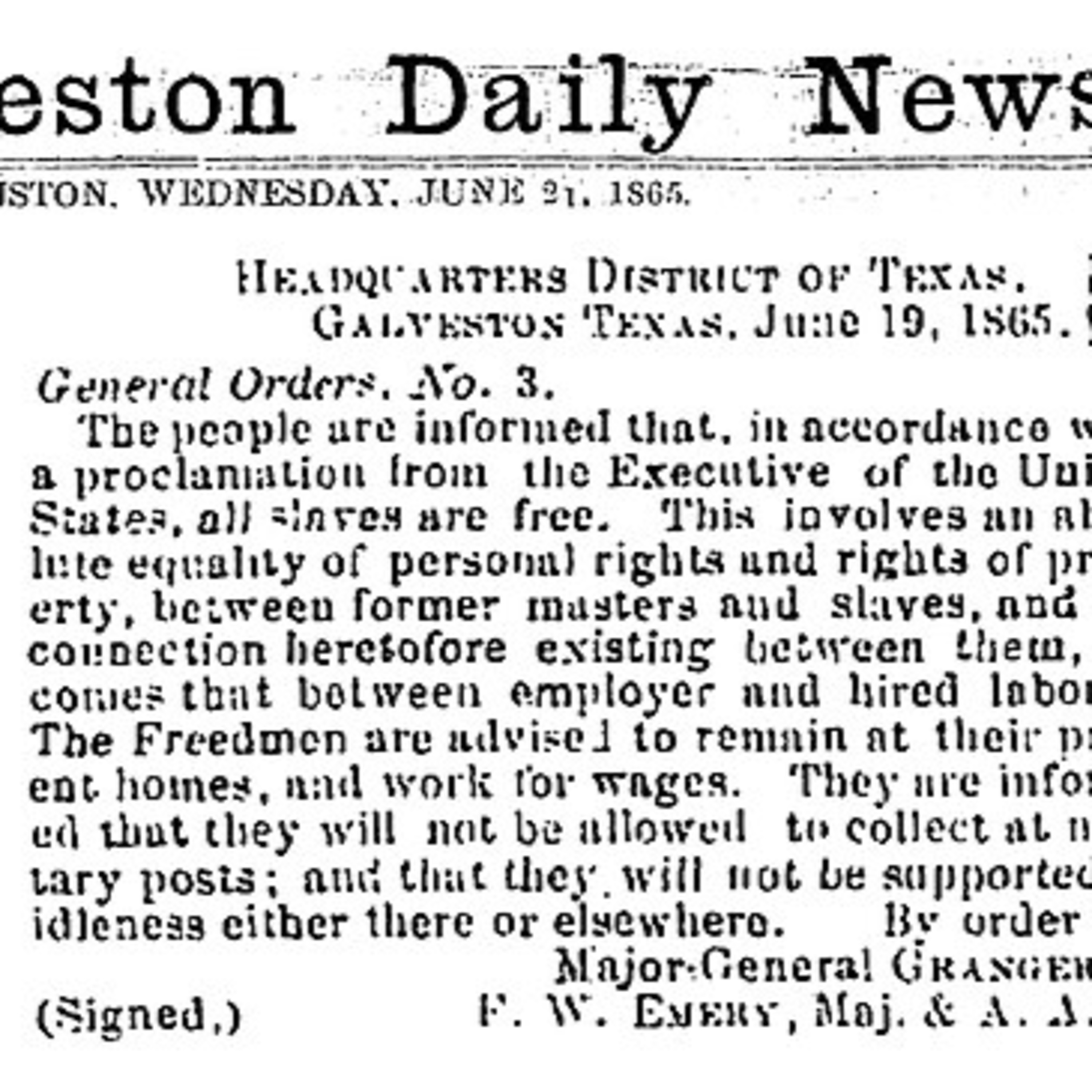
Learning by WilliamA Speech for Racial Justice on JuneteenthImage was obtained via Wikimedia Commons and is available in the public domain.
2022-06-2011 min
Learning by WilliamWhat is the James Webb Space Telescope? How Does it Compare to the Hubble Space Telescope?The launch window is from 7:20 to 7:52 AM EST on December 25th, 2021! Tune in to see live broadcasts of the launch!!!!
2021-12-2533 min
Learning by WilliamThe Right to Privacy and the Abortion DebateWe discuss the right to privacy and its basis (Louis Brandeis), the justification for the right, the constitutional basis for abortion in Roe v. Wade, the two arguments regarding abortion (moral and constitutional approaches), along with the doctrines of stare decisis, selective incorporation, the "right to be left alone," substantive due process, equal protection of the laws, and undue burden.
References:
https://en.wikipedia.org/wiki/The_Right_to_Privacy_(article)
https://en.wikipedia.org/wiki/Incorporation_of_the_Bill_of_Rights#Selective_versus_total_incorporation
https://www...
2021-12-1852 min
Learning by WilliamCOVID-19 New Variant: A Case for "Cautious Optimism" With the Omicron StrainThe Omicron variant has caused considerable panic recently. Having many more mutations, a greater ability to reinfect, and potentially far more transmissibility, Omicron presents humanity with unprecedented danger. However, some recent developments may give us reason to be optimistic, not profoundly worried. In this episode, we present a speech discussing these stories and advocating "cautious optimism."
References:
(n.d.). Retrieved from https://osf.io/f7txy/
Miller, K. (2021, December 09). How Omicron Stacks Up Against the Delta Variant-Including Whether or Not We'll Need a New Vaccine. Retrieved from https://www.prevention...
2021-12-1115 min
Learning by WilliamWhat is Deep-Sky Astrophotography?My Profile on Astrobin:
https://www.astrobin.com/users/WilliamGott/
Starburst Galaxy (Taken by the President of our Astronomical Society) - Astrobin
https://www.astrobin.com/gek830/
Astrophotography - Wikipedia
https://en.wikipedia.org/wiki/Astrophotography
Milky Way Image (a Shot I Took) - Astrobin
https://www.astrobin.com/be7t7j/
Apochromatic Lens - Wikipedia
https://en.wikipedia.org/wiki/Apochromat
Bino-Refractor that is $27,310 - Deep Space Products
https://www.deepspaceproducts.com/product/cff-bino-refractor-160mm-oil-spaced-triplet-apochromat?gclid...
2021-12-0435 min
Learning by WilliamWhat is the History of Literature? - Part 3For anyone who wants to hear only the information on the third part of the series on the history of literature, please skip to 5:45. The first 5:44 covers a new format this channel will take in the forthcoming months.
References:
https://docs.google.com/document/d/1GevT2W-HwTFphiWe_iitjmpteGMTcggQOhuep_Dhcjw/edit?usp=sharing
2021-11-2737 min
Learning by WilliamWhat is the History of Literature? - Part 2References:
https://docs.google.com/document/d/1GevT2W-HwTFphiWe_iitjmpteGMTcggQOhuep_Dhcjw/edit?usp=sharing
2021-11-2027 min
Learning by WilliamWhat is the History of Literature? - Part 1References:
https://docs.google.com/document/d/1GevT2W-HwTFphiWe_iitjmpteGMTcggQOhuep_Dhcjw/edit?usp=sharing
2021-11-1336 min
Learning by WilliamWhat are the Foundational Concepts of Quantum Mechanics? - Part 2References:
https://docs.google.com/document/d/149eB9PG1d3rLXETpWCBK_YBFQMMVNyXLWXR4h_jLW6U/edit?usp=sharing
2021-11-0638 min
Learning by WilliamWhat are the Foundational Concepts of Quantum Mechanics? - Part 1References: https://docs.google.com/document/d/149eB9PG1d3rLXETpWCBK_YBFQMMVNyXLWXR4h_jLW6U/edit?usp=sharing
2021-10-3041 min
Learning by WilliamWhat is the History of Modern Art? - Part 2Reference Doc (use to see paintings as I mention them):
https://docs.google.com/document/d/188UiFP_rpZmKeU0Mq-D_OxroE-BB9KtSJPYZbCn0_iY/edit?usp=sharing
I will be taking my first ACT when this episode releases. Wish me luck!
2021-10-2332 min
Learning by WilliamWhat is the History of Modern Art? - Part 1Reference Doc (use to see paintings as I mention them):
https://docs.google.com/document/d/188UiFP_rpZmKeU0Mq-D_OxroE-BB9KtSJPYZbCn0_iY/edit?usp=sharing
2021-10-1637 min
Learning by WilliamWhat are the Different Types of Optical Telescopes?References:
Telescope - Wikipedia
https://en.wikipedia.org/wiki/Telescope
Refracting (Refractor) Telescope - Wikipedia
https://en.wikipedia.org/wiki/Refracting_telescope
Reflecting (Reflector) Telescope - Wikipedia
https://en.wikipedia.org/wiki/Reflecting_telescope
Catadioptric Telescope - Wikipedia
https://en.wikipedia.org/wiki/Catadioptric_system
Schmidt-Cassegrain Telescope (extra telescopes that give examples of catadioptric telescopes) - Wikipedia
https://en.wikipedia.org/wiki/Schmidt%E2%80%93Cassegrain_telescope
Dobsonian Telescope (type of Newtonian telescope) - Wikipedia
https...
2021-10-0934 min
Learning by WilliamWhat is the History of European Art From the Medieval Era to the Neoclassical Era? - Part 2Reference Document:
https://docs.google.com/document/d/1_ukksVRRyYCZpgDqK2myH8ZnGWwgyNeFsWLPpI6Z8mM/edit?usp=sharing
2021-10-0247 min
Learning by WilliamWhat is the History of European Art From the Medieval Era to the Neoclassical Era? - Part 1Reference Document:
https://docs.google.com/document/d/1_ukksVRRyYCZpgDqK2myH8ZnGWwgyNeFsWLPpI6Z8mM/edit?usp=sharing
2021-09-2532 min
Learning by WilliamWhat is General Relativity?References:
General Relativity - Wikipedia
https://en.wikipedia.org/wiki/General_relativity
Field Equations - Warwick Department of Physics
https://warwick.ac.uk/fac/sci/physics/intranet/pendulum/generalrelativity/
Heisenberg’s Uncertainty Principle - Wikipedia
https://en.wikipedia.org/wiki/Uncertainty_principle
Stress-Energy Tensor - Wikipedia
https://en.wikipedia.org/wiki/Stress%E2%80%93energy_tensor
Einstein’s Field Equations - Wikipedia
https://en.wikipedia.org/wiki/Einstein_field_equations
Einstein Tensor - Wikipedia
https://en.wikip...
2021-09-1837 min
Learning by WilliamWhat is the History of Art From Prehistory to Antiquity? - Part 3As this episode is being published on 9/11, let's all take a moment to appreciate our dauntless first responders, many of whom lost their lives fighting terrorism on that wretched day. Let the pulchritudinous unity following the attacks be a symbol for our nation and our world's unending struggle toward unity.
Long list of references that may be used while listening to the podcast:
https://docs.google.com/document/d/1_jfIyFZ0nEzQM8AgSKo4ph66bBt6LmSjoGp-6JTMrt4/edit?usp=sharing
2021-09-1135 min
Learning by WilliamWhat is the History of Art From Prehistory to Antiquity? - Part 2Long list of references that may be used while listening to the podcast:
https://docs.google.com/document/d/1_jfIyFZ0nEzQM8AgSKo4ph66bBt6LmSjoGp-6JTMrt4/edit?usp=sharing
2021-09-0429 min
Learning by WilliamWhat is the History of Art From Prehistory to Antiquity? - Part 1Long list of references that may be used while listening to the podcast:
https://docs.google.com/document/d/1_jfIyFZ0nEzQM8AgSKo4ph66bBt6LmSjoGp-6JTMrt4/edit?usp=sharing
2021-08-2828 min
Learning by WilliamWhat is Kinematics?References:
Intro. To Kinematics - PhysicsHigh
https://www.youtube.com/watch?v=198u1x8TBTo
Kinematics in the Oxford Dictionary
https://www.google.com/search?q=kinematics&rlz=1CAZKSY_enUS959US959&oq=kinematics&aqs=chrome.0.69i59j69i57j69i59j0i271j69i60l3j69i65.1067j0j7&sourceid=chrome&ie=UTF-8
Kinematics - Wikipedia
https://en.wikipedia.org/wiki/Kinematics
Direction Cosine - Wikipedia
https://en.wikipedia.org/wiki/Direction_cosine
Unit Vector - Wikipedia
https://en...
2021-08-2137 min
Learning by WilliamWhat is Special Relativity?References:
Relativity (Einstein) - Wikipedia
https://en.wikipedia.org/wiki/Theory_of_relativity
Special Relativity - Wikipedia
https://en.wikipedia.org/wiki/Special_relativity
Two Postulates of Special Relativity - Lumen Learning
https://courses.lumenlearning.com/physics/chapter/28-1-einsteins-postulates/
Lorentz Transformation - Virginia Tech
https://www1.phys.vt.edu/~takeuchi/relativity/notes/section08.html
Galilean Transformation - Wikipedia
https://en.wikipedia.org/wiki/Galilean_transformation
Lorentz Factor - Wikipedia
https://en.wikipedia.org/wiki...
2021-08-1434 min
Learning by WilliamWhat is the International System of Units (SI System)?References:
International System of Units - Wikipedia
https://en.wikipedia.org/wiki/International_System_of_Units
Metric System - Wikipedia
https://en.wikipedia.org/wiki/Metric_system
International Bureau on Weights and Measures - Wikipedia
https://en.wikipedia.org/wiki/International_Bureau_of_Weights_and_Measures
Base Unit - Wikipedia
https://en.wikipedia.org/wiki/SI_base_unit
Derived Unit - Wikipedia
https://en.wikipedia.org/wiki/SI_derived_unit
Second - Wikipedia
https://en...
2021-08-0730 min
Learning by WilliamThe Psychology Behind Why Some are Hesitant to Get Vaccinated to Slow the Spread of COVID-19 and the New Delta VariantJust as I said in the mask hesitancy episode (episode 5), we mustn’t call those that are hesitant of the vaccines “anti-vaxxers,” for the term is derogatory and in many cases, categorically untrue. Instead of blaming the Republicans, the Democrats, the conservatives, and the liberals, we are going to explore the actual, non-political and political reasons for which Americans, and all humans, are hesitant to get vaccinated against COVID-19. In this episode, the perfervid debate over the vaccine will be simplified into a matter of human psychology, not political disposition.
References:
Vaccine Hesitancy: History - Wikipe...
2021-07-3147 min
Learning by WilliamWhat is Energy?References:
Energy - Wikipedia
https://en.wikipedia.org/wiki/Energy
Law of Conservation of Energy - Wikipedia
https://en.wikipedia.org/wiki/Conservation_of_energy
Isolated System - Wikipedia
https://en.wikipedia.org/wiki/Isolated_system
Time Translation Symmetry - Wikipedia
https://en.wikipedia.org/wiki/Time_translation_symmetry
Noether’s Theorem - Wikipedia
https://en.wikipedia.org/wiki/Noether%27s_theorem
Conservative Force - Khan Academy
https://www.khanacademy.org/science/high-school-physics/work-and-energy-2/gravitational-potential-energy-and-conservative-forces/v...
2021-07-2423 min
Learning by WilliamWhat are Newton’s Laws of Motion?References:
Newton’s Laws of Motion - Wikipedia
https://en.wikipedia.org/wiki/Newton%27s_laws_of_motion
Inertia - Wikipedia
https://en.wikipedia.org/wiki/Inertia
Galileo’s Law of Inertia (First Law of Motion) - Britannica
https://www.britannica.com/science/law-of-inertia
Inertial Frame of Reference - Wikipedia
https://en.wikipedia.org/wiki/Inertial_frame_of_reference
Momentum - Wikipedia
https://en.wikipedia.org/wiki/Momentum
Variable Mass System and the Second Law of Motion - Wi...
2021-07-1729 min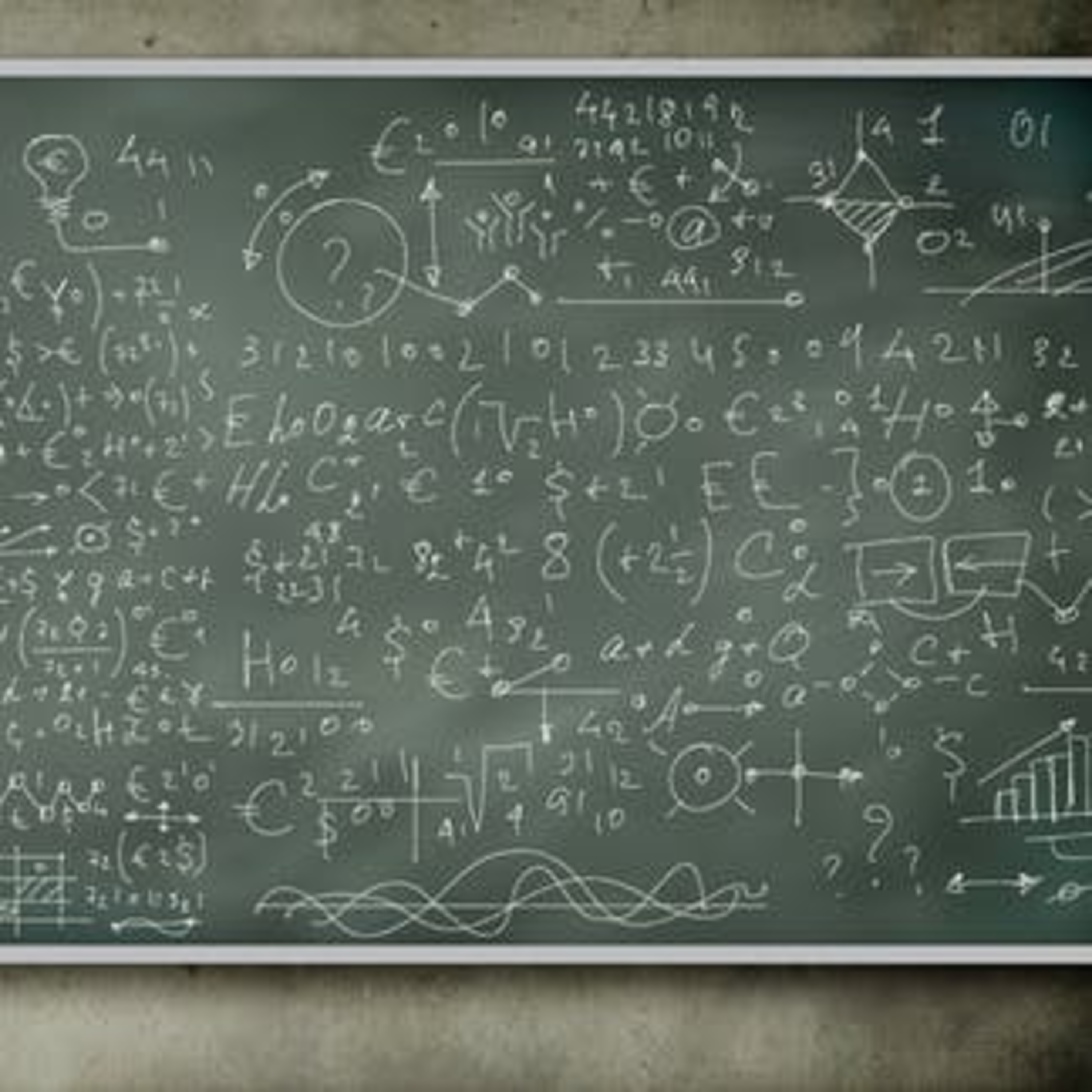
Learning by WilliamWhat is Calculus? - Derivatives, Integrals, and Differential EquationsShareable link to the document (has all of the mathematical examples that will be discussed in both this episode and the following episode):
https://docs.google.com/document/d/1VfEVBscCPTfoyTDyv4ZRFJYL9Luzyd1UHvjxzz-uwpg/edit?usp=sharing
References:
Derivative - Wikipedia
https://en.wikipedia.org/wiki/Derivative
Power Rule - Wikipedia
https://en.wikipedia.org/wiki/Power_rule
All derivative calculations were checked using this website
https://www.derivative-calculator.net/
Product Rule - Wikipedia
https://en.wikipedia...
2021-07-1048 min
Learning by WilliamWhat is Calculus? - Basics, Functions, and LimitsNote: in the episode, William said that e to the power of anything, excluding zero, equals zero. This is obviously not correct, for e^1 ≈ 2.718
Shareable link to the document (has all of the mathematical examples that will be discussed in both this episode and the following episode):
https://docs.google.com/document/d/1VfEVBscCPTfoyTDyv4ZRFJYL9Luzyd1UHvjxzz-uwpg/edit?usp=sharing
References:
Calculus - Wikipedia
https://en.wikipedia.org/wiki/Calculus
History of Calculus - Wikipedia
https://en.wikipedia.org/wi...
2021-07-0334 min
Learning by WilliamWelcome to Learning by WilliamWelcome to Learning by William! I am your host, William Gottemoller, and I am happy to join you on your pursuit of knowledge!
2021-07-0105 min
Learning by WilliamWhat is Abstract Algebra? - Rings, Fields, Modules, Lattices, Vector Spaces, Algebras, and Galois TheoryReferences:
Galois Theory - Wikipedia
https://en.wikipedia.org/wiki/Galois_theory
Commutative Ring - Wikipedia
https://en.wikipedia.org/wiki/Commutative_ring
Commutative Algebra - Wikipedia
https://en.wikipedia.org/wiki/Commutative_algebra
Commutative Property - Wikipedia
https://en.wikipedia.org/wiki/Commutative_property
Noncommutative Ring - Wikipedia
https://en.wikipedia.org/wiki/Noncommutative_ring
Glossary of Ring Theory - Wikipedia
https://en.wikipedia.org/wiki/Glossary_of_ring_theory
Field...
2021-06-2636 min
Learning by WilliamWhat is Abstract Algebra? - Group Theory and the 196,883-Dimensional "Monster"References:
Abstract Algebra - Wikipedia
https://en.wikipedia.org/wiki/Abstract_algebra
“Group theory, abstraction, and the 196,883-dimensional monster” - 3Blue1Brown
https://www.youtube.com/watch?v=mH0oCDa74tE
Axiomatic System - Wikipedia
https://en.wikipedia.org/wiki/Axiomatic_system
Axiom - Wikipedia
https://en.wikipedia.org/wiki/Axiom
Pure Mathematics - Wikipedia
https://en.wikipedia.org/wiki/Pure_mathematics
Group Theory - Wikipedia
https://en.wikipedia.org/wiki/Group_theory
Grou...
2021-06-1936 min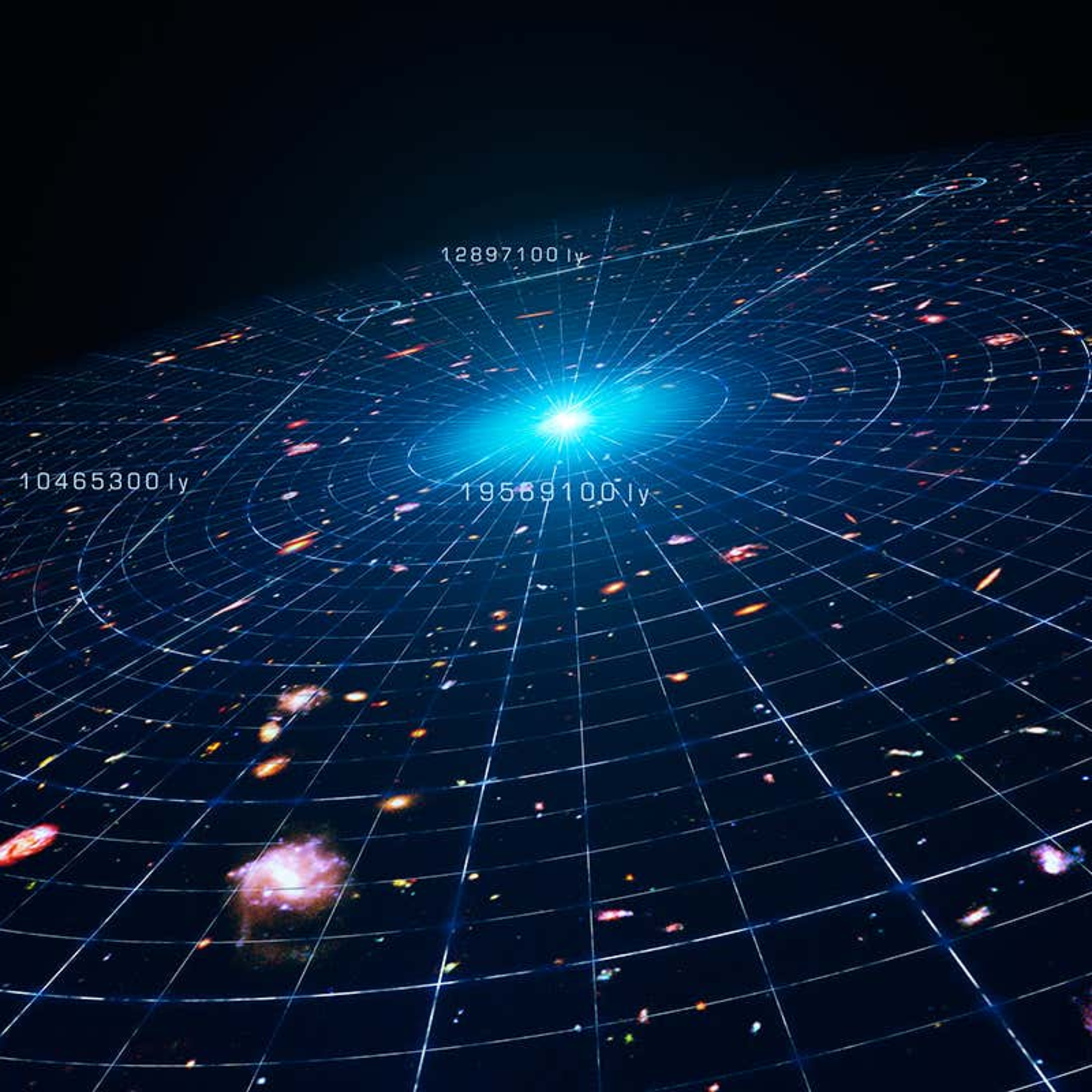
Learning by WilliamWhat are Dark Matter and Dark Energy? Part 2References
Isotropy of Dark Energy - StackExchange
https://physics.stackexchange.com/questions/196729/is-dark-energy-homogeneous-and-or-isotropic
Quantum Field Theory - Wikipedia
https://en.wikipedia.org/wiki/Quantum_field_theory
Energy Density - Wikipedia
https://en.wikipedia.org/wiki/Energy_density
Casimir Effect - Wikipedia
https://en.wikipedia.org/wiki/Casimir_effect
Cosmological Constant Problem - Wikipedia
https://en.wikipedia.org/wiki/Cosmological_constant_problem
Quintessence - Wikipedia
https://en.wikipedia.org/wiki/Quintessence_(physics)
Renormalization Theory...
2021-06-1528 min
Learning by WilliamWhat are Dark Matter and Dark Energy? Part 1References
Cosmological Expansion - Wikipedia
https://en.wikipedia.org/wiki/Expansion_of_the_universe
Dark Matter - Wikipedia
https://en.wikipedia.org/wiki/Dark_matter
Dark Energy - Wikipedia
https://en.wikipedia.org/wiki/Dark_energy
Galaxy Rotation Curve - Wikipedia
https://en.wikipedia.org/wiki/Galaxy_rotation_curve
Virial Theorem - Wikipedia
https://en.wikipedia.org/wiki/Virial_theorem
Lambda-CDM Model - Wikipedia
https://en.wikipedia.org/wiki/Lambda-CDM_model
Scale Factor...
2021-06-0530 min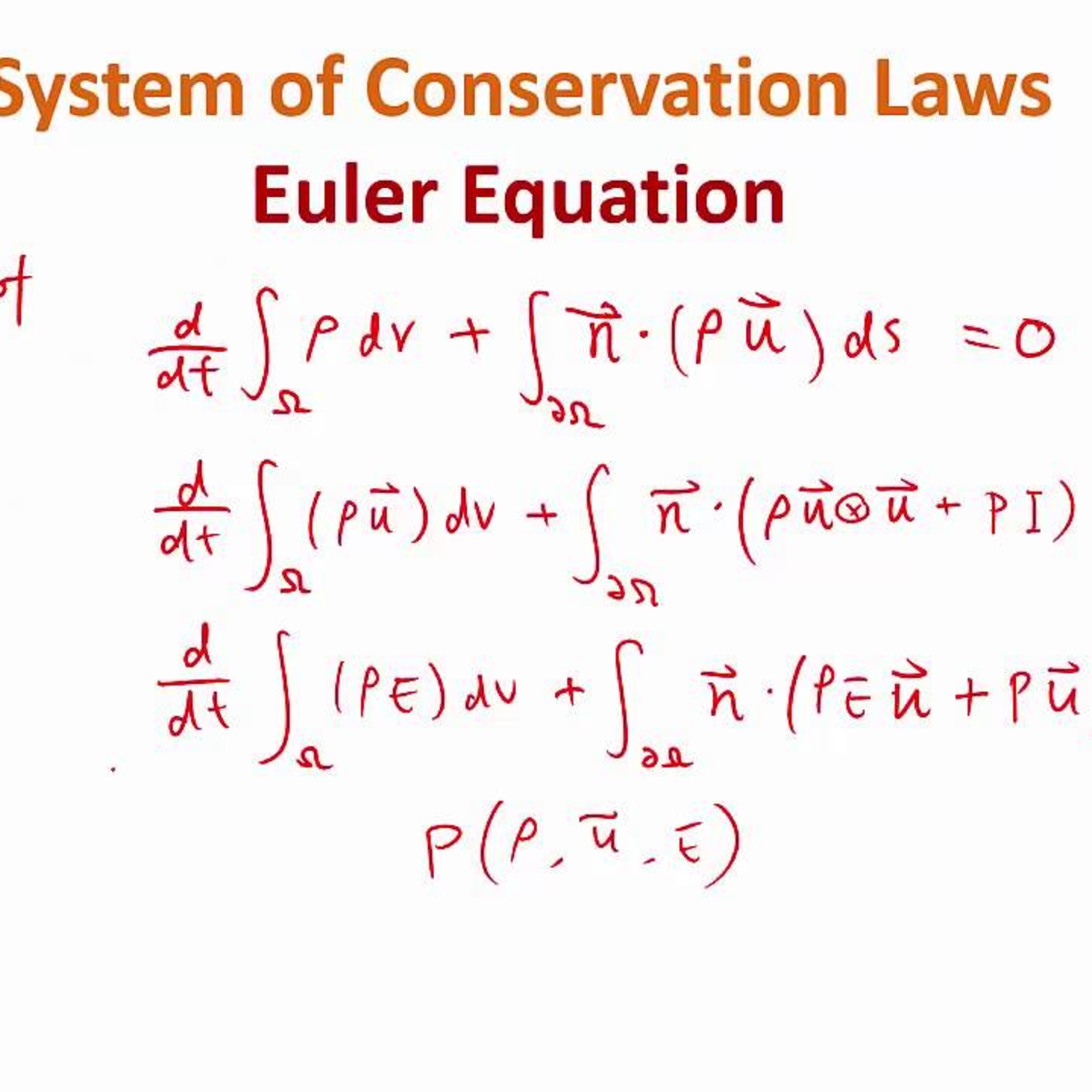
Learning by WilliamWhat are the Laws of Conservation?References:
Conservation Law - Britannica
https://www.britannica.com/science/conservation-law
Conservation Law - Wikipedia
https://en.wikipedia.org/wiki/Conservation_law
Noether’s Theorem - Wikipedia
https://en.wikipedia.org/wiki/Noether%27s_theorem
Mass-Energy Equivalence - Wikipedia
https://en.wikipedia.org/wiki/Conservation_of_mass-energy
Law of Conservation of Energy - Wikipedia
https://en.wikipedia.org/wiki/Conservation_of_energy
Energy-Momentum Equivalence - Wikipedia
https://en.wikipedia.org/wiki/Energy%E2%80%93momentum_relation...
2021-05-2926 min
Learning by WilliamWhy do Women do Remarkably Better Than Men in School? Why do Men do Remarkably Better Than Women in the Office?References:
“Why Girls Beat Boys at School and Lose to Them at the Office” - The New York Times
https://www.nytimes.com/2019/02/07/opinion/sunday/girls-school-confidence.html
“Why Girls Tend to Get Better Grades Than Boys Do” - The Atlantic
https://www.theatlantic.com/education/archive/2014/09/why-girls-get-better-grades-than-boys-do/380318/
“Girls Make Higher Grades than Boys in All School Subjects, Analysis Finds” - Press Releases, American Psychological Association
https://www.apa.org/news/press/releases/2014/04/girls-grades
“Racial, Ethnic, and Gender Differences in School Discipline among U.S. High School Student...
2021-05-2229 min
Learning by WilliamWhat is Thermodynamics? What are the Laws of Thermodynamics?References:
Thermodynamics - Wikipedia
https://en.wikipedia.org/wiki/Thermodynamics
Laws of Thermodynamics - KhanAcademy
https://www.khanacademy.org/science/ap-biology/cellular-energetics/cellular-energy/a/the-laws-of-thermodynamics
Latent Heat - Wikipedia
https://en.wikipedia.org/wiki/Latent_heat
Heat Capacity - Wikipedia
https://en.wikipedia.org/wiki/Heat_capacity
Why Does a Ball Bounce Lower? - StackExchange
https://physics.stackexchange.com/questions/117091/why-does-a-ball-bounce-lower
Zeroth Law of Thermodynamics - Wikipedia
https://en.wikipedia.org/wiki/Zeroth_law_of...
2021-05-1528 min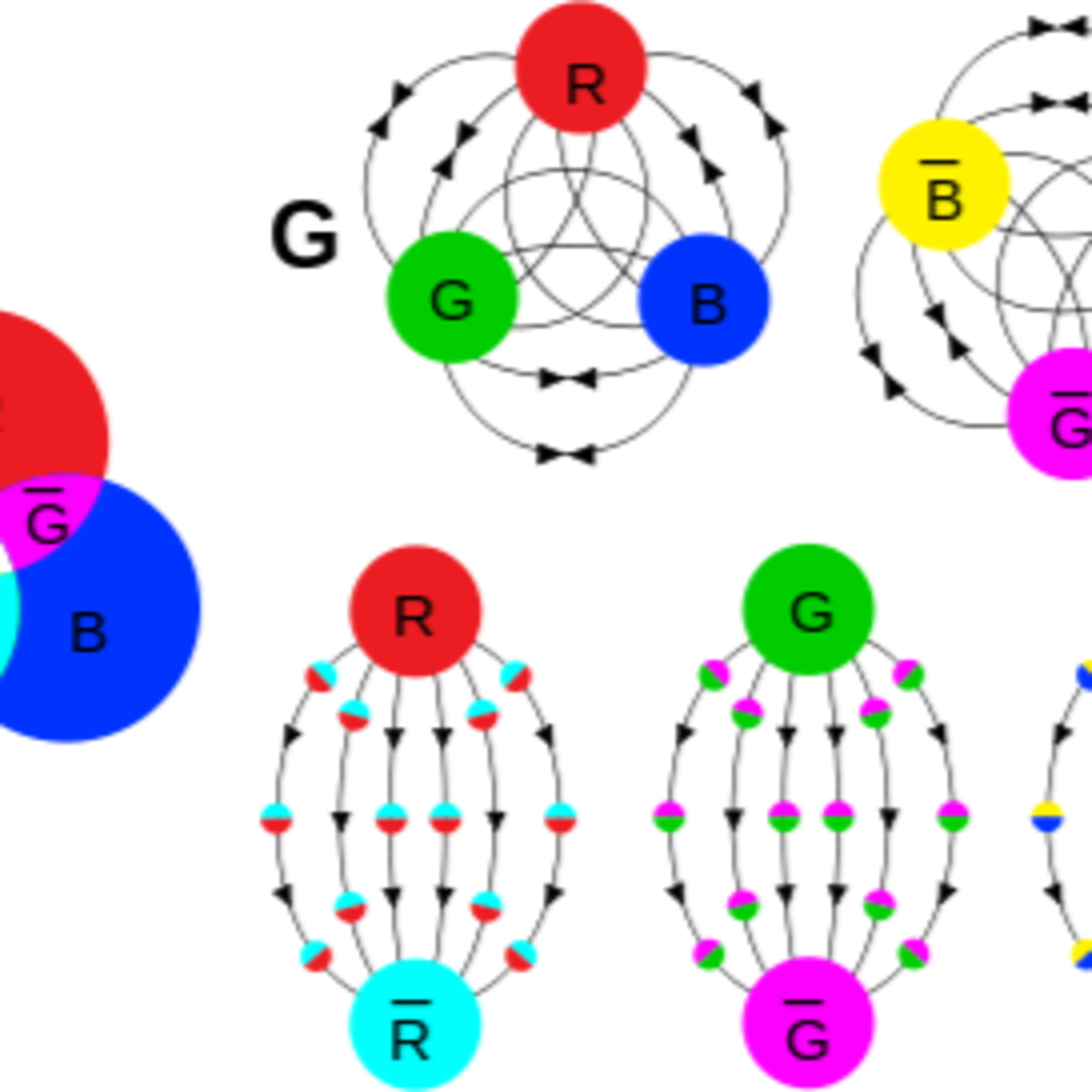
Learning by WilliamWhat is Quantum Chromodynamics (QCD)?References:
Quantum Chromodynamics - Wikipedia
https://en.wikipedia.org/wiki/Quantum_chromodynamics
Strong CP (charge-parity) Problem - Wikipedia
https://en.wikipedia.org/wiki/Strong_CP_problem
Quark - Wikipedia
https://en.wikipedia.org/wiki/Quark
Origin of the Word “Quark” - ScienceFriday
https://www.sciencefriday.com/articles/the-origin-of-the-word-quark/
Eightfold Way (Physics) - Wikipedia
https://en.wikipedia.org/wiki/Eightfold_way_(physics)
Color Charge - Wikipedia
https://en.wikipedia.org/wiki/Color_charge
Non-Abelian Gaug...
2021-05-0834 min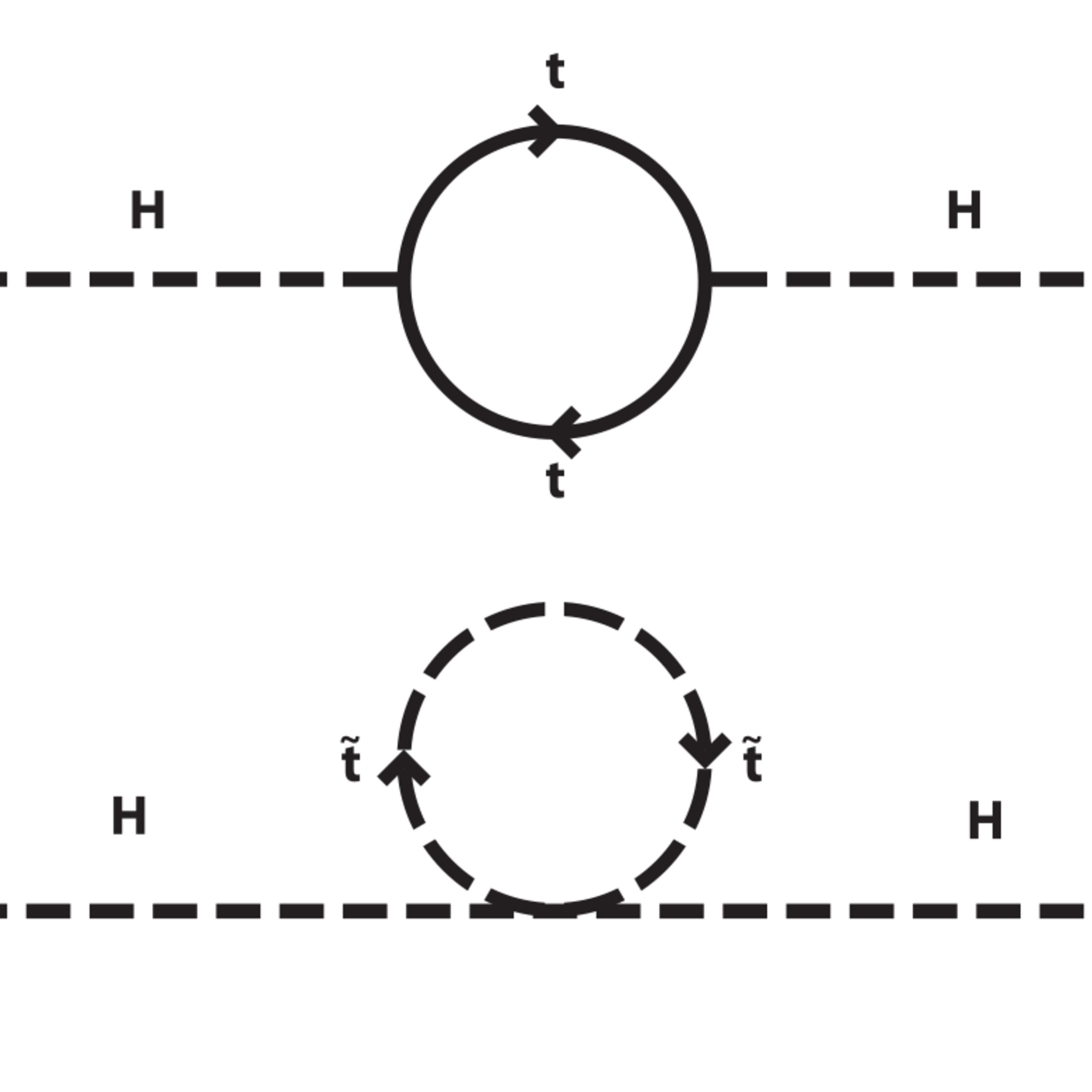
Learning by WilliamWhat is the Hierarchy Problem in Particle Physics?Edit: in the episode, the Higgs field is referred to as having a “mass of 250 GeV.” This is NOT correct; 250 GeV refers specifically to the energy of an object, as GeV is an energy, not a mass, scale. References:
Hierarchy Problem - Wikipedia
https://en.wikipedia.org/wiki/Hierarchy_problem
Hierarchy Problem - Of Particular Significance
https://profmattstrassler.com/articles-and-posts/particle-physics-basics/the-hierarchy-problem/
Planck Mass - COSMOS
https://astronomy.swin.edu.au/cosmos/P/Planck+Mass
Special Unitary Group - Wikipedia
https://en.wikipedia.org/wiki/Special_unitary_group
Doublet State (Quantum Mechanics) - Wikipedia
https://en.wikipedia.org/wiki/Doublet_stat...
2021-05-0135 min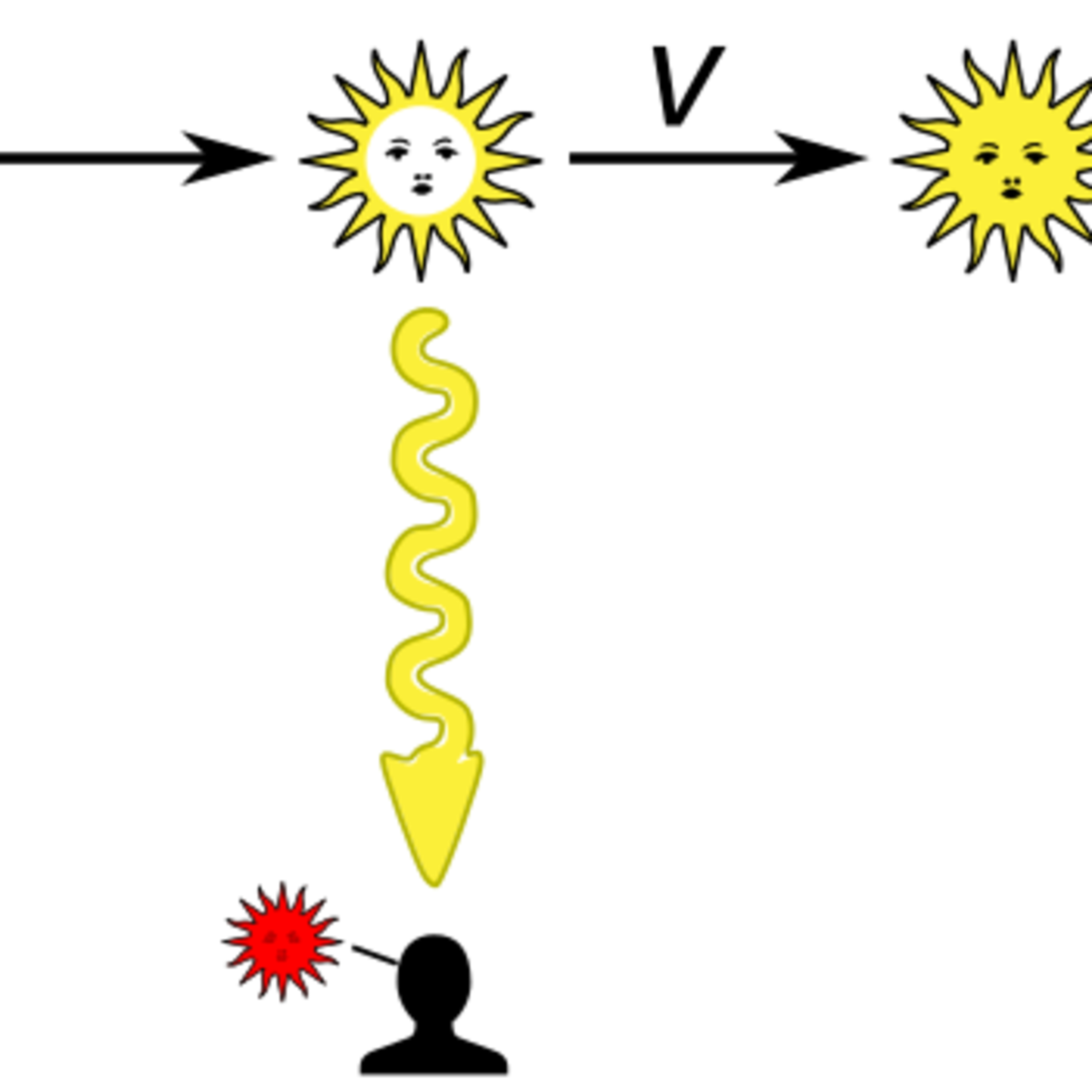
Learning by WilliamWhat is the Relativistic Doppler Effect? Why do Distant Galaxies Appear “Redshifted?”When gazing into the deep expanse of the universe and finding the distant quasars and galaxies, we notice a particular feature that is commonplace no matter where we look: the further away the galaxy or deep sky object is, the redder, or the longer wavelength, the object appears; it seems that a galaxy like the Andromeda Galaxy is far less red than a comparable galaxy that is 1.6 billion light years away. This feature was once noticed by the astrophysicist Edwin Hubble, a physicist that will be spoken of frequently in this chapter, who found that this reddening paradigm was...
2021-04-2432 min
Learning by WilliamWhat is the Speed of Light? What can Travel at the Speed of Light?As we, being objects with mass, approach relativistic speeds, our masses continue to increase, and the energy required to propel us continues to increase; once we are near enough to the speed of light, a major mathematical and physical conflict occurs: not only are we now composed of infinite mass, but we also require infinite energy to propel ourselves. Considering the fact that there is not an infinite amount of energy, or mass, for that matter, in the universe, it is reasonable to believe that the speed of light is unattainable for us massive beings. Our travels are limited...
2021-04-1731 min
Learning by WilliamHow is a Proton Positive and a Neutron Neutral? What are Quarks?The atom is most definitely not the smallest particle and most definitely can be broken down into smaller pieces; even the protons and the neutrons that we considered to be fundamental particles in and of themselves can be broken down into smaller particles. In an attempt to open your minds beyond the delusion that the atom cannot be broken down, this chapter is to convey and communicate the building blocks of the building blocks of atoms, which we have alluded to oftentimes in previous chapters but have not covered in-depth. Welcome to the wondrous world of quarks.
2021-04-1035 min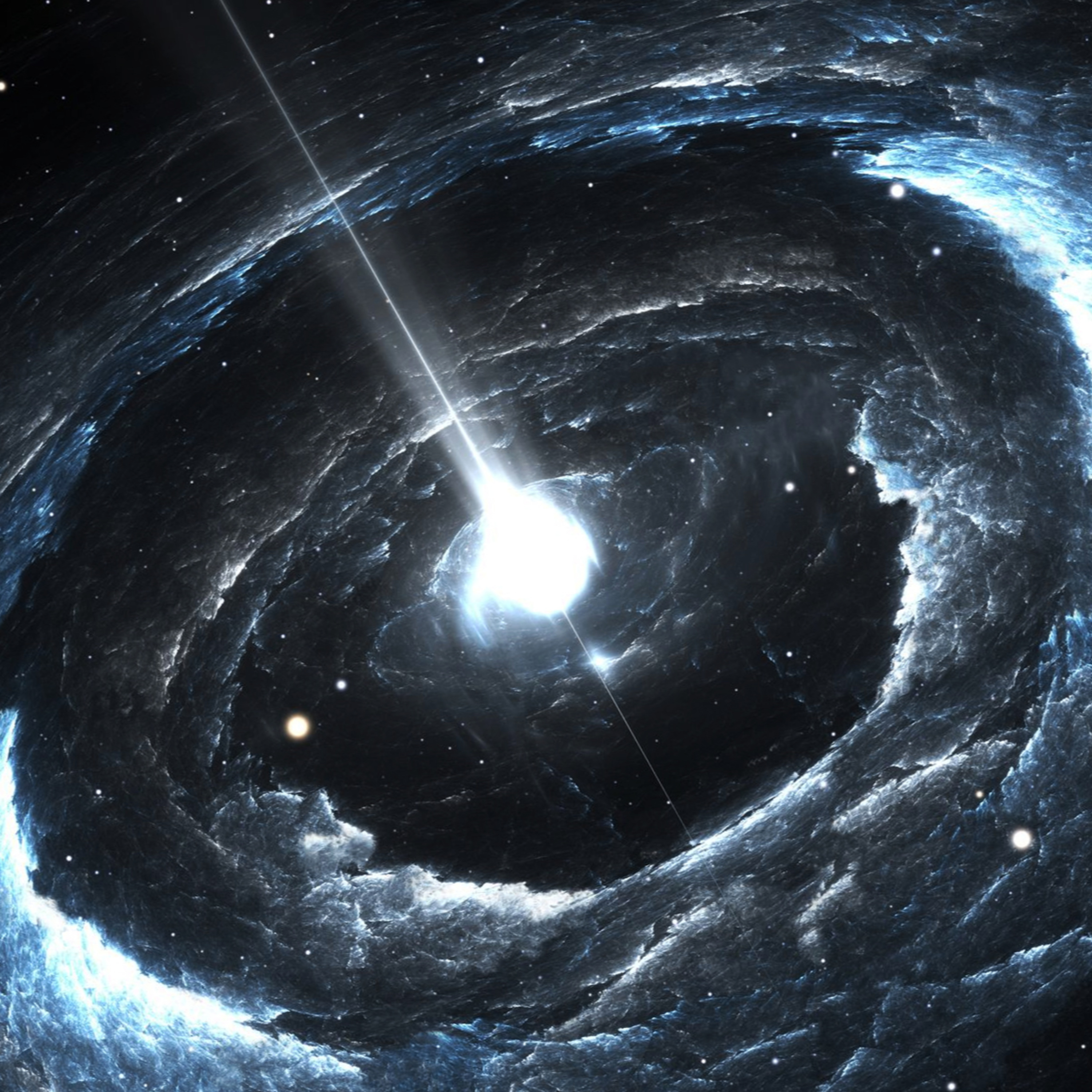
Learning by WilliamWhat Types of Extreme Stars are There in the Universe?References
White Dwarf - COSMOS
https://astronomy.swin.edu.au/cosmos/W/White+Dwarf
White Dwarf - Wikipedia
https://en.wikipedia.org/wiki/White_dwarf
Electron Degeneracy Pressure - COSMOS
https://astronomy.swin.edu.au/cosmos/E/electron+degeneracy+pressure
Pauli Exclusion Principle and Atomic Energy Levels - Khan Academy
https://www.khanacademy.org/science/physics/quantum-physics/atoms-and-electrons/v/atomic-energy-levels
Orbital Energy States - LibreTexts
https://chem.libretexts.org/Bookshelves/General_Chemistry/Map%3A_Chemistry_(Zumdahl_and_Decoste)/07%3A...
2021-04-0336 min
Learning by WilliamWhat Types of Life Cycle Stars are There?Chances are, you have seen the night sky before. Thou looketh to the Heavens: what does thou see? It is likely that one sees a few, or a few thousand, glimmering stars, some shining brighter than others; some orange, red, blue; some massive, some small; some luminous, some dim. It is likely that you have seen at least a somewhat dark night sky sometime in your past life, as I assume most of you have gone camping or hiking or biking, sometimes, or often if you are similar to I, during the night. In the Northern winter, the night...
2021-03-2733 min
Learning by WilliamWhat is Supersymmetry? What is a Sfermion?As I was interested in the topic of supersymmetry, I decided to add it to the list of chapter nodes, this one being chapter 26. As I assume is known, today, the concept that is to be understood is the concept of supersymmetry and its role in physics, astronomy, and quantum mechanics.
References
Supersymmetry - Wikipedia
https://en.wikipedia.org/wiki/Supersymmetry
Bosonic Quantum States - StackExchange
https://physics.stackexchange.com/questions/59929/what-prevents-bosons-from-occupying-the-same-location
Supersymmetry - CERN
https://home.cern/science/physics/supersymmetry
2021-03-2031 min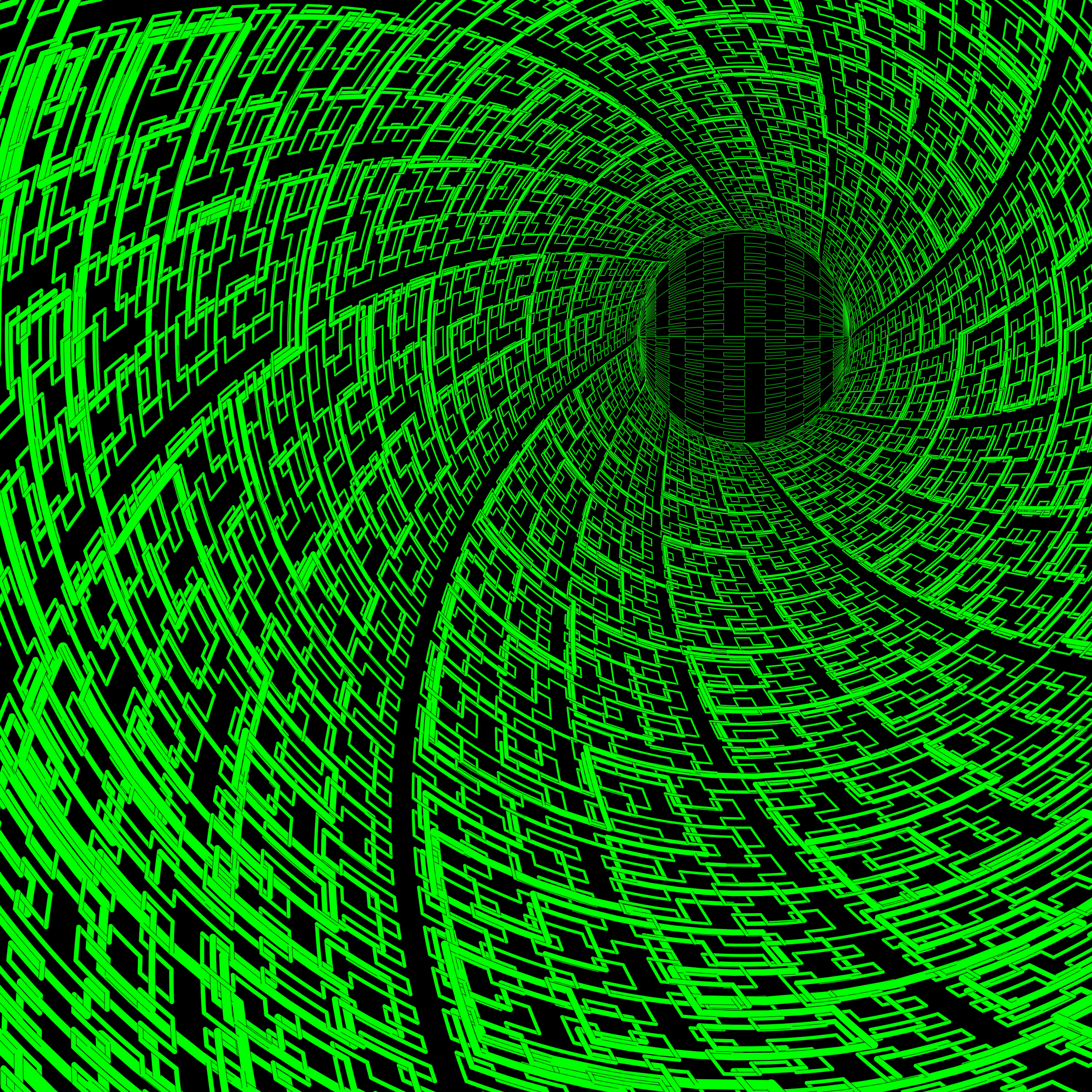
Learning by WilliamWhat is Hilbert Space in Mathematics and Quantum Mechanics?In this episode, we will be covering Hilbert Space and its importance in quantum mechanics. Please cut me some slack because this topic combines abstract algebra with advanced calculus, both of which I do not know. The history of Hilbert Space and the application of it into quantum mechanics should be simple, but its application and derivation surrounding mathematics will likely stump me; I know the English language, but not integrals and multivariable vector calculus. But anyways, let’s explore the foundation of something I do not understand and the foundation of quantum mechanics, Hilbert space.
Re...
2021-03-1332 min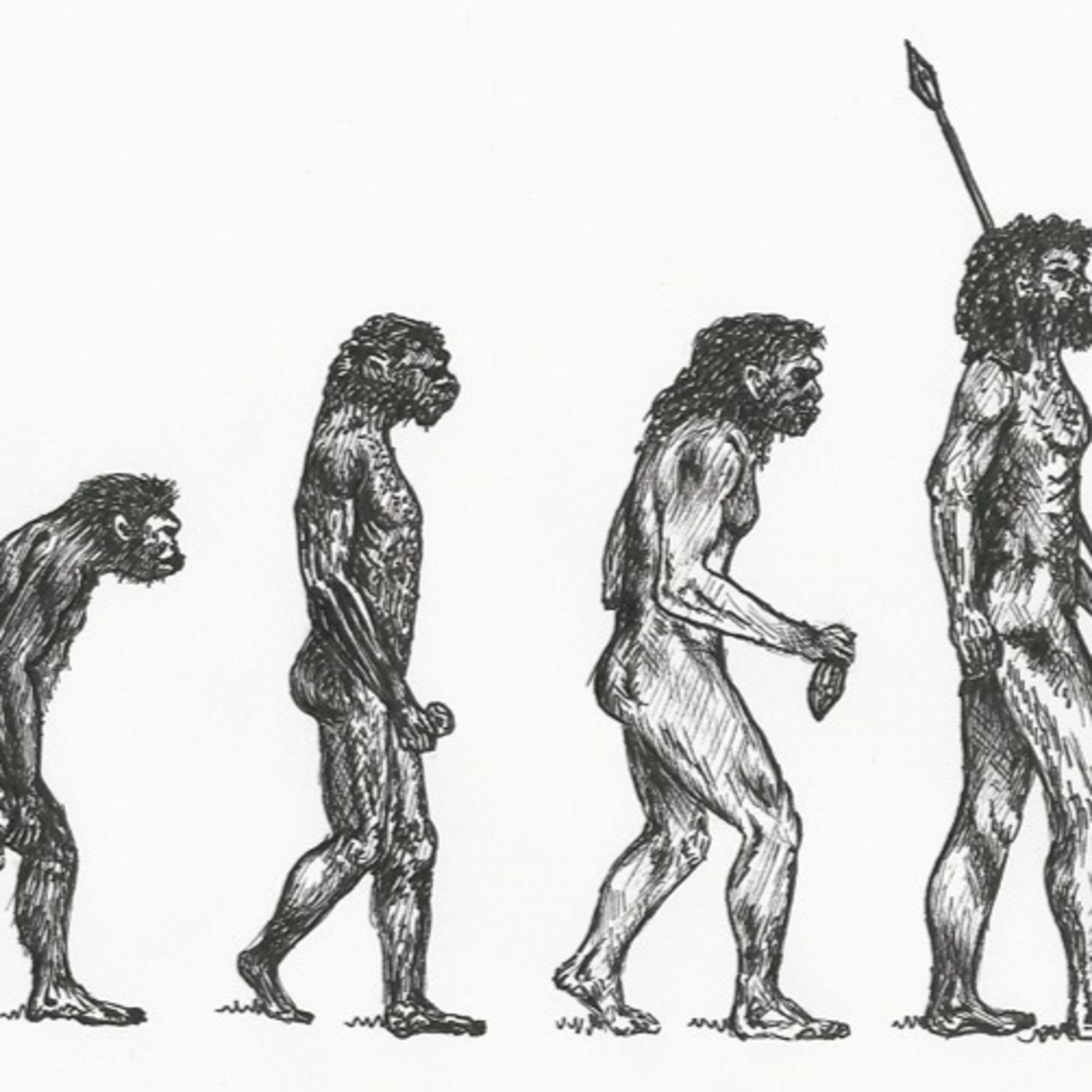
Learning by WilliamWhat is a Human?From where did we originate? How did we develop highly organized societies and civilizations? From what species did we diverge? What made humans different from their ape relatives and ancestors? What traits about humans are most unique and invigorating? These questions, and many more, will be answered in today’s episode, where we explore the birth of our genus, homo, and the birth of our species, the homo sapien.
References
Homo sapien - Wikipedia
https://en.wikipedia.org/wiki/Human
Australopithecines - ScienceDirect
https://www.sciencedirect.co...
2021-03-0634 min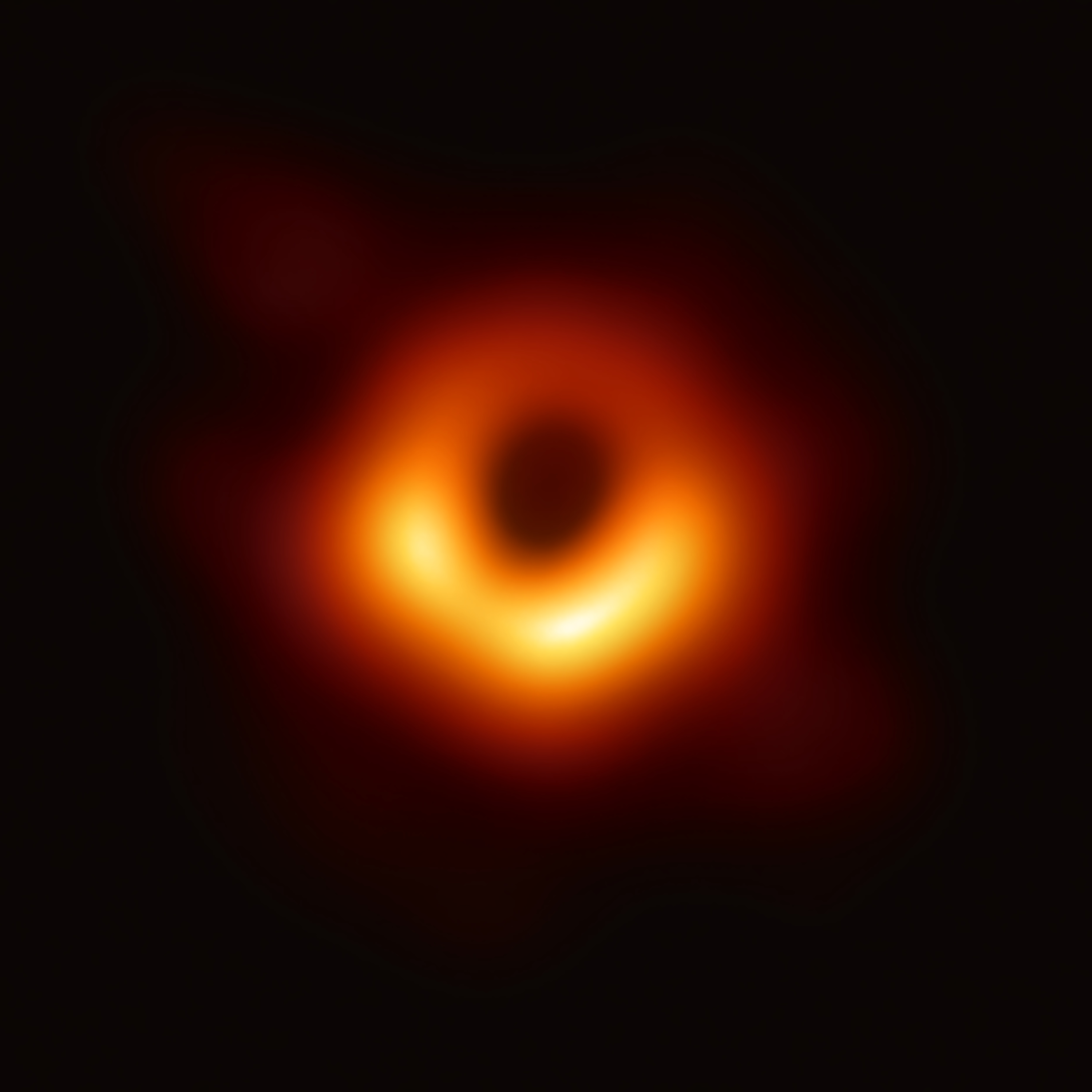
Learning by WilliamWhat is a Black Hole?In April of 2019, scientists and radio astronomers around the world came together to share the world’s first image of a black hole. In a stunning polynational consortium, radio astronomers from 20 different countries utilized their radio telescopes to image the black hole in the center of Messier 87, the largest object on the entire Messier catalogue of 110 objects. This consortium used many of the world’s most prestigious telescopes, along with atomic clocks, two custom built supercomputers (think about that custom built computer at your friend’s house and multiply that by 150,000), and several new computational techniques in image acquisition, to tak...
2021-02-2729 min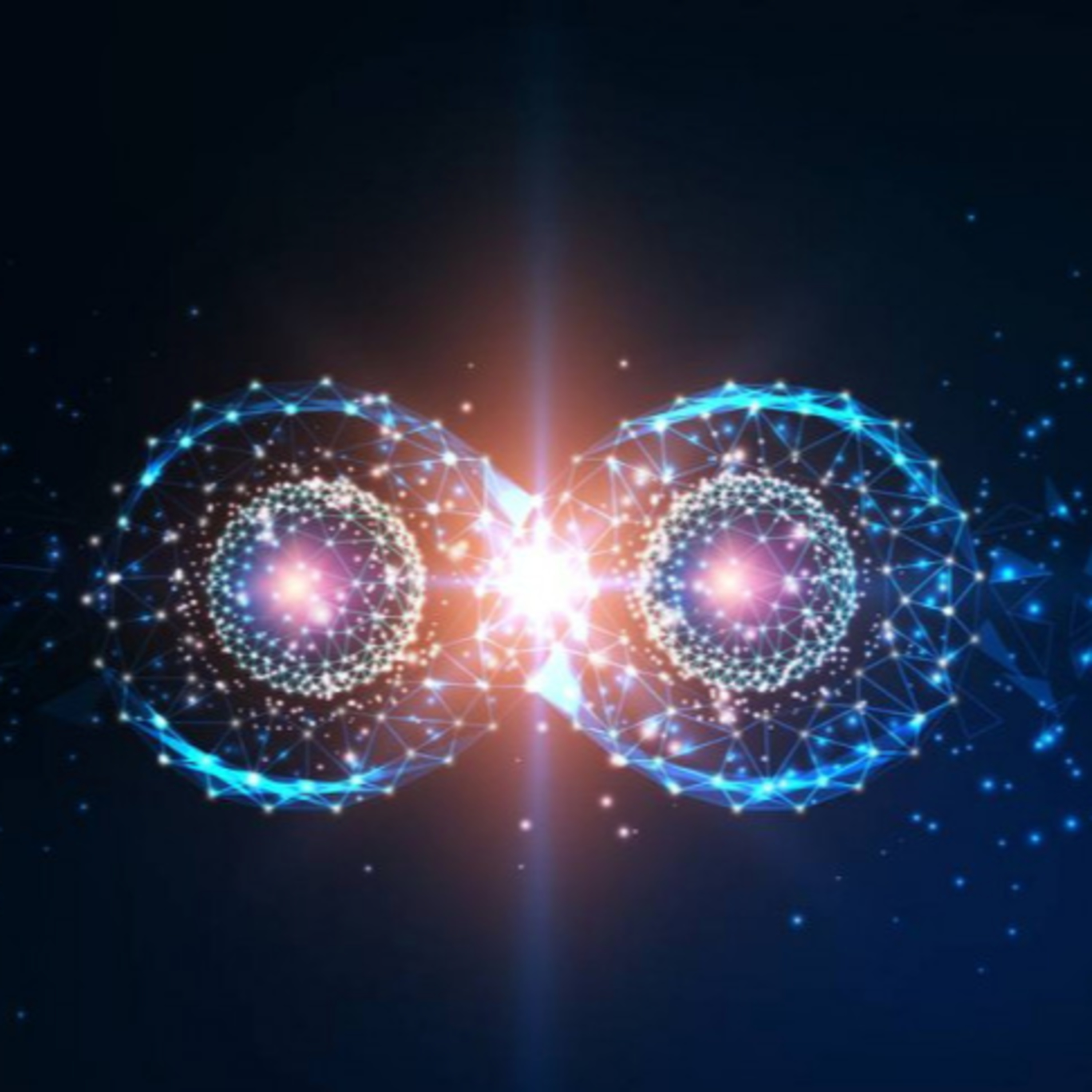
Learning by WilliamWhat is Quantum Entanglement? Spooky Action at a Distance Explained!After conducting numerous episodes of astrophysics and quantum mechanics, I feel that I am finally dipping my toes into the ocean of physics that exists right below my nose. I feel that I am finally able to explain, though with a rudimentary understanding of the topic, the pillars of quantum mechanics. I thought I would make this episode to humble myself and prove to myself that I do not, at all, have even a rudimentary understanding of the wild west of astrophysics: quantum mechanics. Even so, in our relentless pursuit of knowledge and understanding, we stumble upon the greatness...
2021-02-2030 min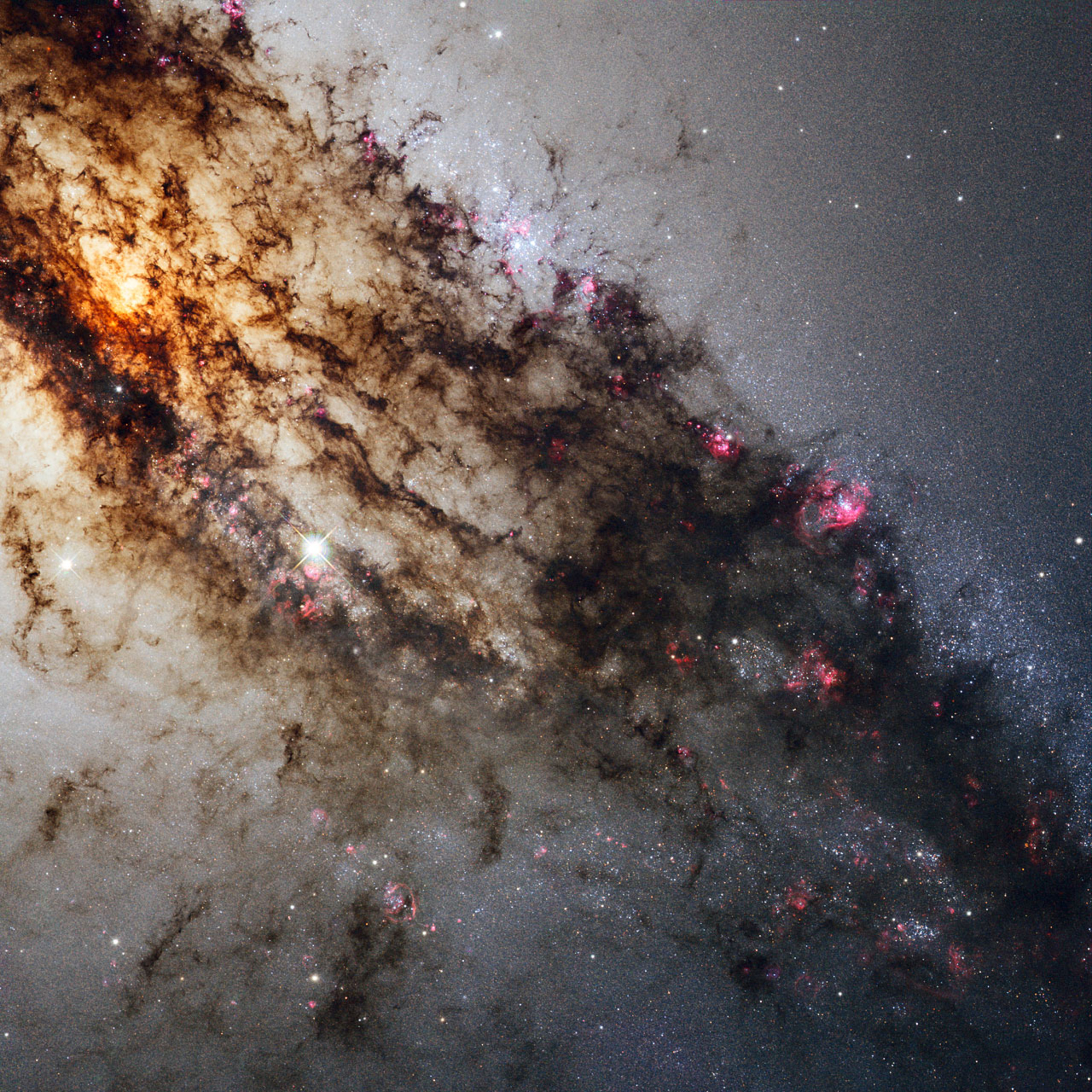
Learning by WilliamWhat Types of Galaxies are There?For hundreds of thousands of years, humans have stared up at their night sky in spectacular wonder; lined with thousands of stars, some bright, some faint, and 5 particular wanderers we now know as planets, our human ancestors found great indulgence in the night sky. With the beautiful beams of light shining through the night, there exists another, less luminous band of haze that appears throughout the northern summer and a very faint band that appears throughout the northern winter. This diffuse and branching pattern of haze in the night sky came to be referred to in the western world...
2021-02-1333 min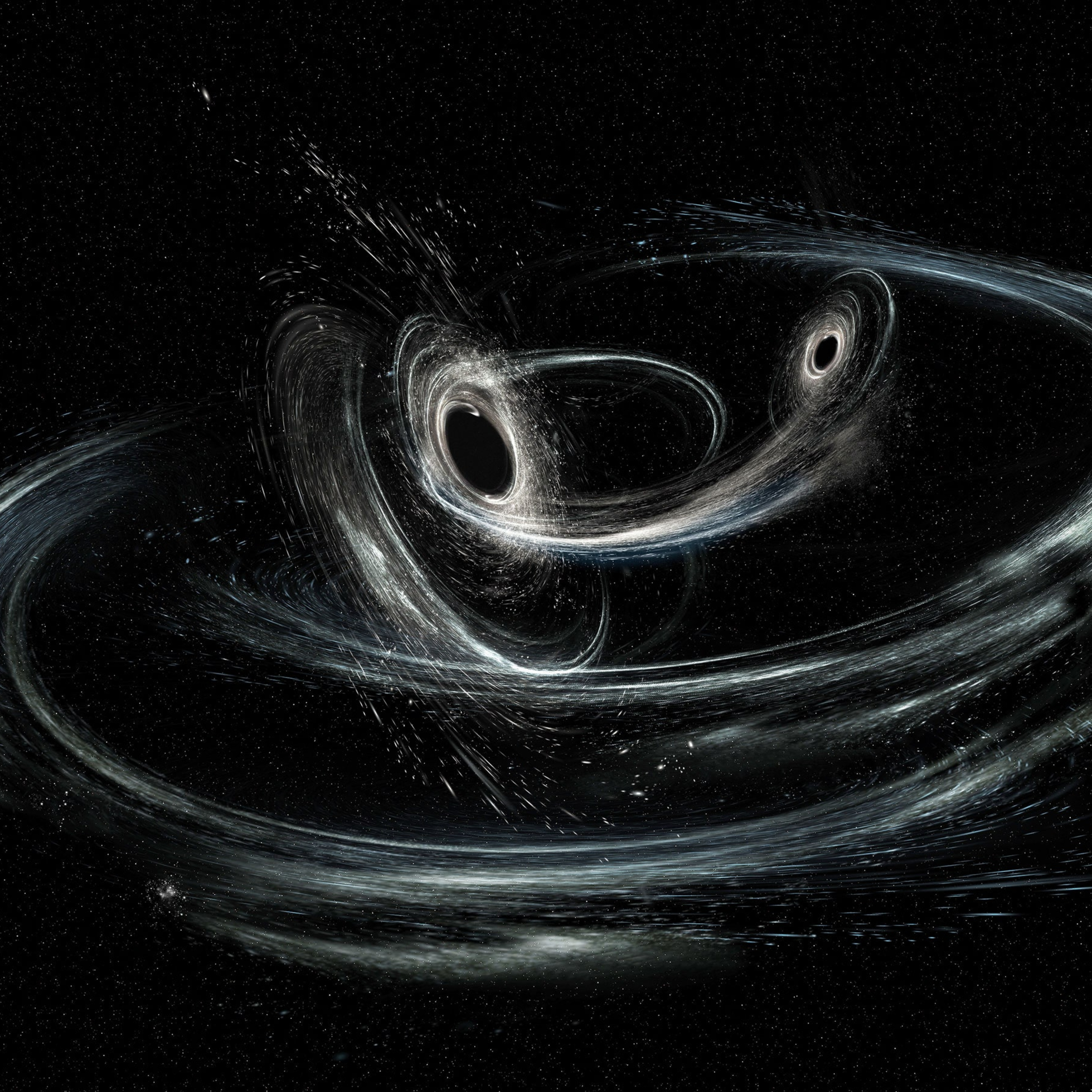
Learning by WilliamHere is What Astronomers Have Discovered in the Month of JanuaryIn the 21st century, scientists, notably physicists and astronomers, have made exceptional discoveries and exceptional advancements in the field of science. From the discovery of the Higgs Boson to the discovery of the neutrino and a new state of matter, astronomers and physicists alike have made important and outstanding contributions to the scientific development of our society in this century. It seems to me that these incredible discoveries often go overlooked; we are so caught up in our screens and our crises that we forget to realize the intense and exceptional development occurring right under our noses.
2021-02-0629 min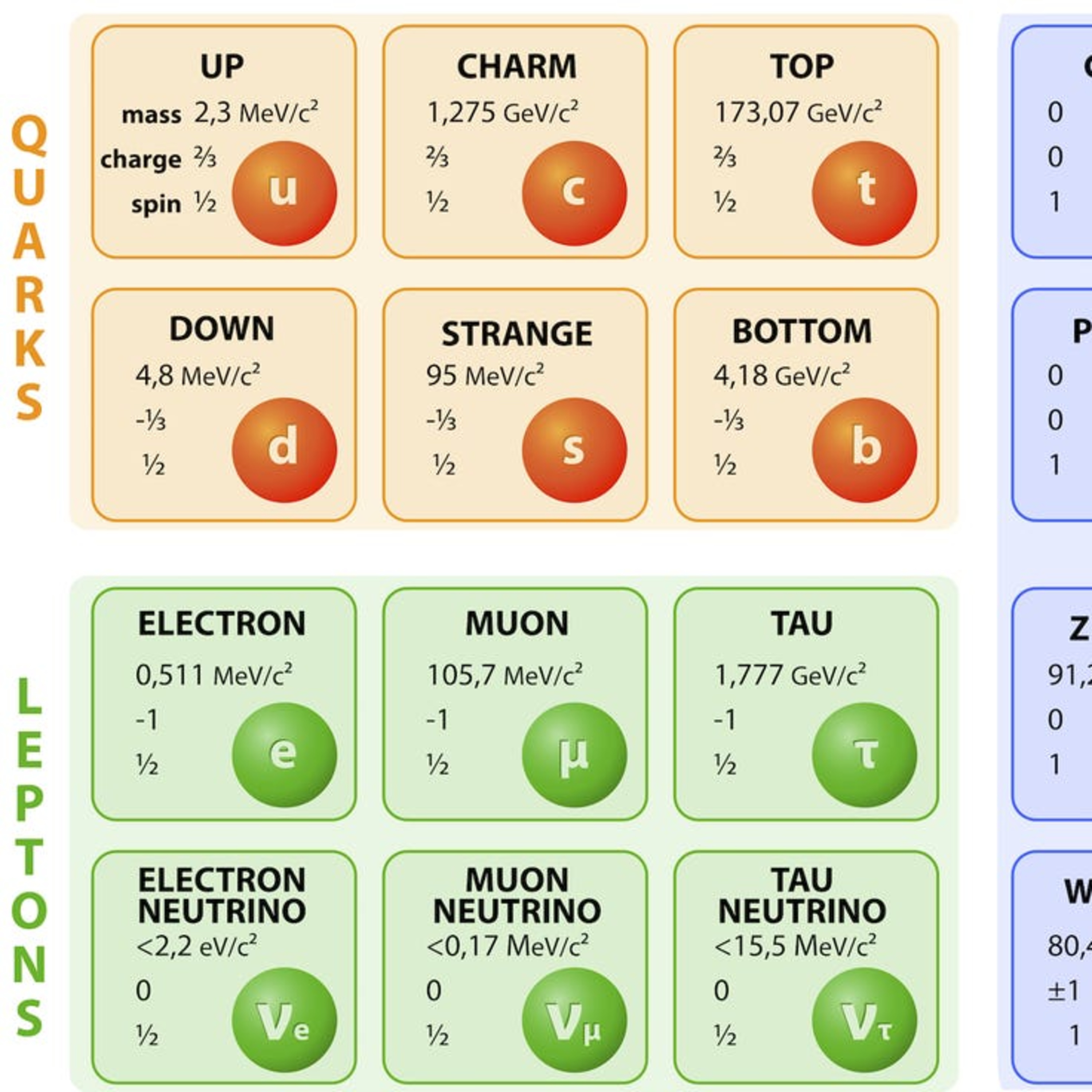
Learning by WilliamWhat is the Standard Model of Particle Physics?Last episode, we discussed the Copenhagen Interpretation of quantum mechanics. The episode got quite deep and interesting, as we delved deeper into some of the more complex topics that plague the great scientific minds of our generation. We made typical mechanical physics, often regarded as one of the most difficult high school classes that exists, look like a child's play. Quantum mechanics is, without a doubt, a heavy topic. The difficulty and uncertainty that exists with quantum mechanics is not isolated merely to quantum mechanics; there exists many other scientific paradigms and phenomena that plague scientific minds and force...
2021-01-3028 min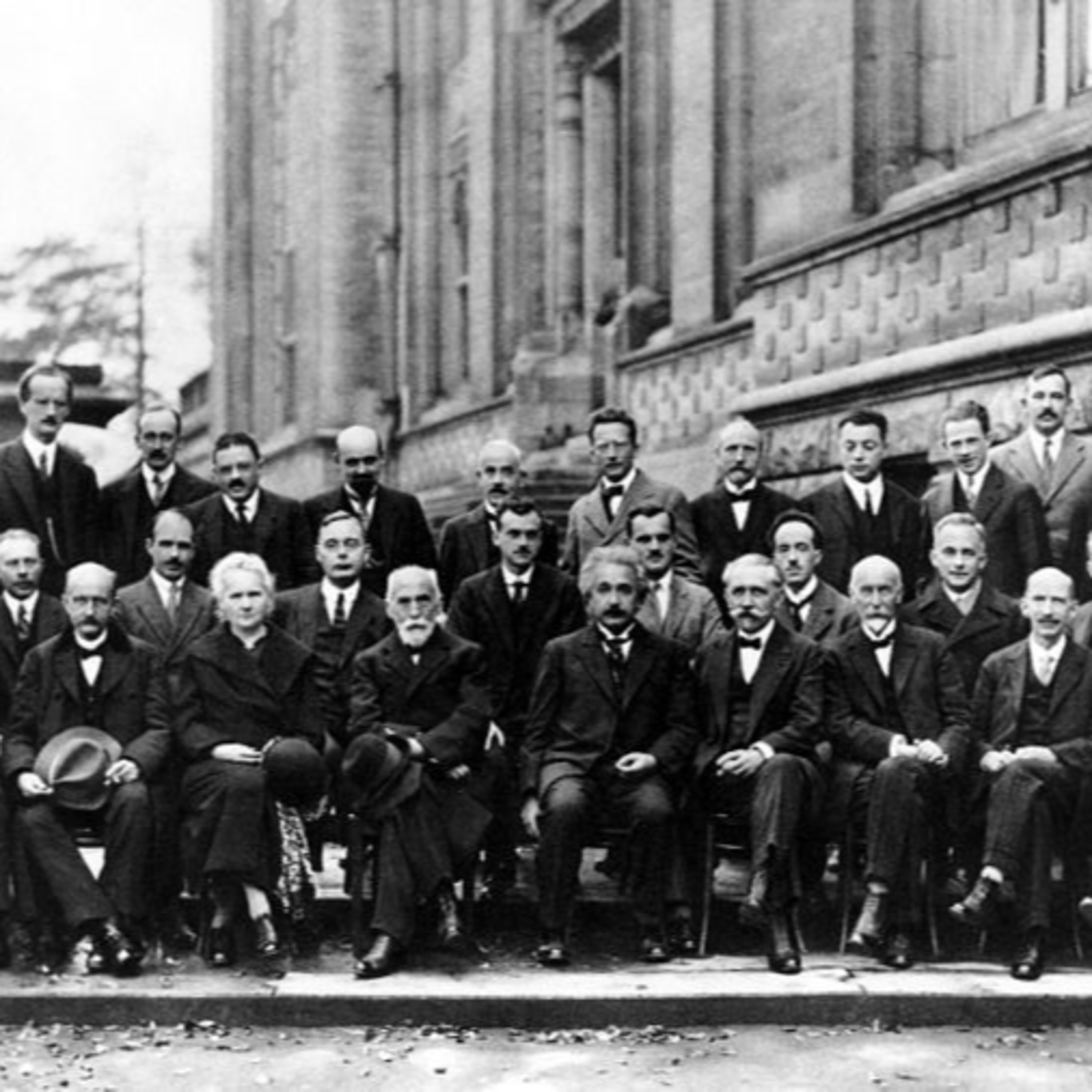
Learning by WilliamWhat is the Copenhagen Interpretation of Quantum Mechanics?Physics has always existed as the horrible and confusing class that high school teenagers have to fight to survive through. It has existed as a unanimously difficult class with much room for confusion. Through my own experiences, I have observed that teenagers generally hate physics; they take the class for the credit it provides, but they often gain nothing from the class. Many go on to fail their physics classes, whether it is an AP class or a normal class. In this episode, we will look into the main interpretation comprising quantum mechanics, the Copenhagen Interpretation, and we will...
2021-01-2332 min
Learning by WilliamAuthoritarianism is Damaging to the Pursuit of Science and Knowledge- Here are a few Scientists who Stood Their Scientific Ground Against AuthoritarianismThe 20th century was plagued with conflict, disease, and terror, but at the same time, the 20th century flourished with growth. Whether it was the vast increase in population, the development of vaccines and antibiotics, the overthrowal of fascism and communism, or the acceleration to space, the 20th century experienced a level of growth unheard of in previous centuries. Almost all of this growth can be attributed to the sciences, as new discoveries and advancements in the scientific and technological worlds allowed for the growth the 20th century was known by to have flourished. As we continue on in...
2021-01-1626 min
Learning by WilliamWhat is a Supernova? How did we get all the Heavier Elements, Like Nitrogen, Phosphorus, Uranium, and Plutonium?Yes, ununbiquium does not exist. I made the element up as a satirical node towards the heaviest elements known as of yet- Ununilium, Unununium, Ununbium, Ununtrium, Ununquadium, Ununpentium, Ununhexium, and Ununseptium.
The main elements that comprise the human body are carbon, hydrogen, nitrogen, oxygen, phosphorus, and sulfur. These 6 elements form a word that you may have heard in your biology class, CHNOPS. CHNOPS stands for those six elements that comprise the vast majority of one’s mass. The most important, even though all these elements are essential specifically to human life, are four specific el...
2021-01-0926 min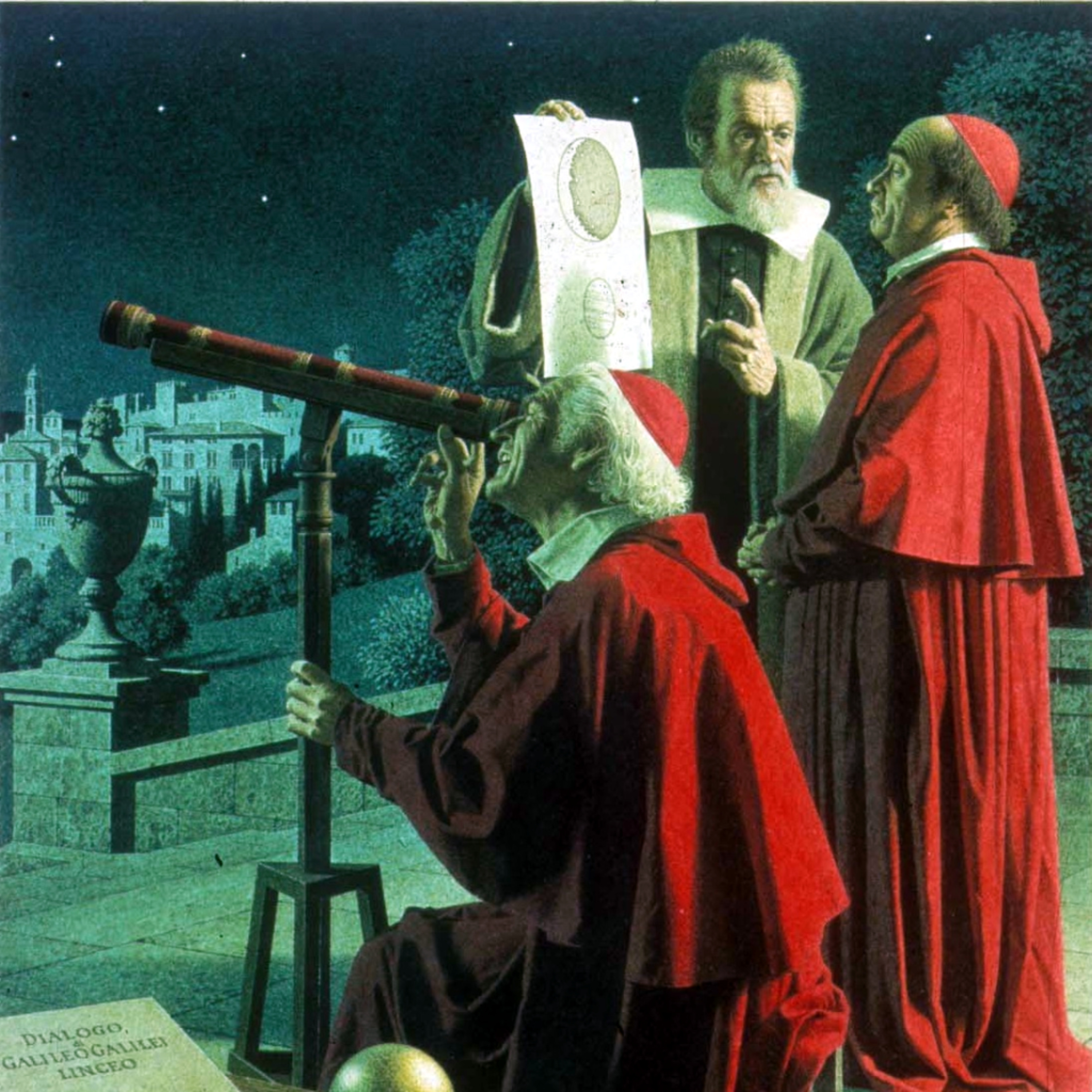
Learning by WilliamIn the Middle Ages, Scientists Rebelled Against the Catholic Church to Advocate for their Discoveries- Here are a few Scientists whom the Catholic Church Prosecuted for Their DiscoveriesIn the 10,000-12,000 years since humans invented agriculture and settled down, autocracy, theocracy, aristocracy, and fascism have dominated civilizations. From the Greeks to the Romans to the French to the English to the Germans, a line of religious, spiritual, lineal, and political dictatorship occurred for the millennia. Only recently have we begun forcing out of the grips of control in order to achieve global democracy. In the thousands of years we have lived in civilizations, we have only begun to see the light at the end of the tunnel- the light of democracy is finally starting to shine upon...
2021-01-0229 min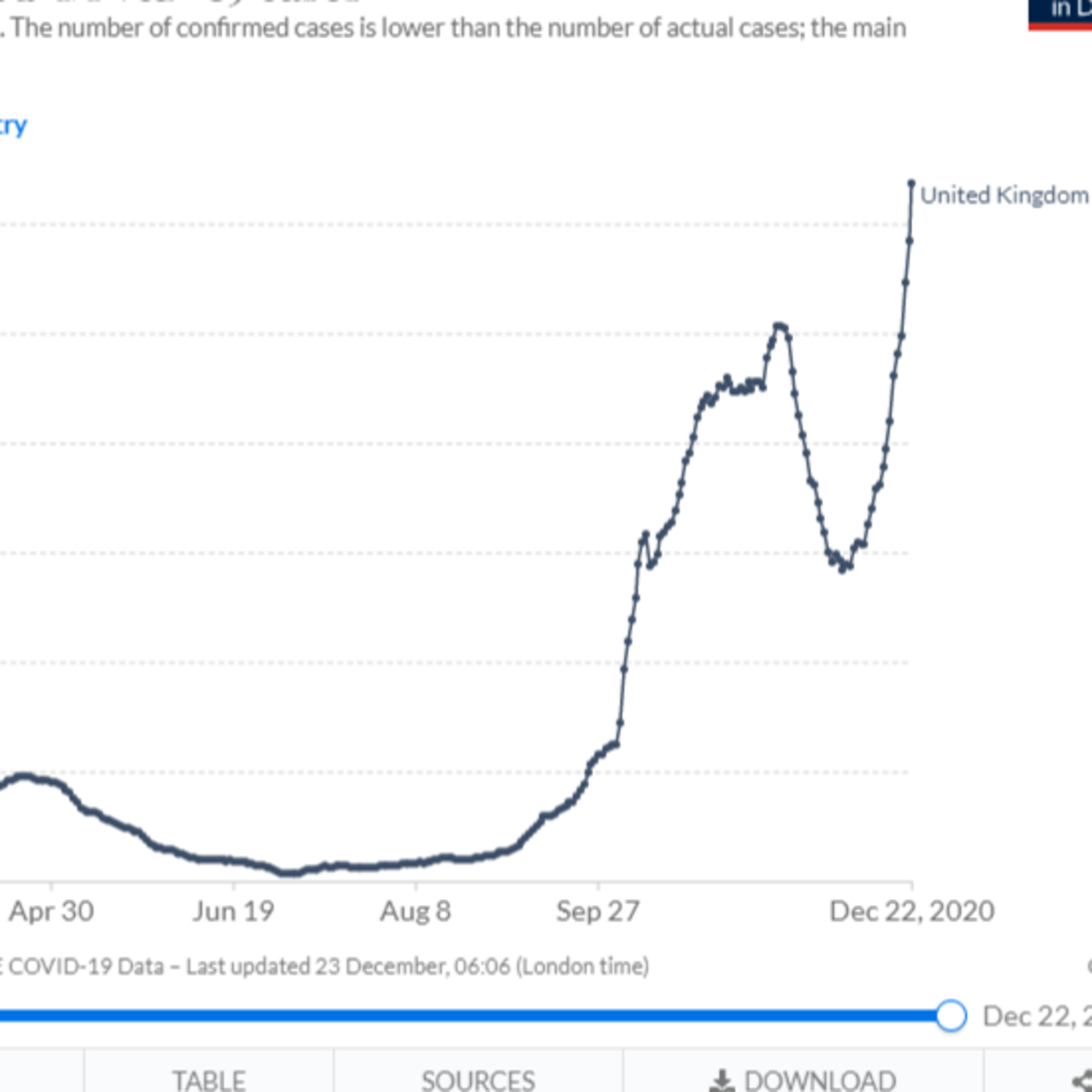
Learning by WilliamTHREE New COVID-19 Variants, One of Them Officially Dubbed VUI-202012/01 or Lineage B.1.1.7, are Spreading Rampant in the United Kingdom- Here is What a New Strain Means for the Recovery and VaccineFor the last year we have dealt with an oppressive pandemic that has forever altered our way of life. Typical work settings have evolved from offices to living rooms, typical five day school settings have become zoom calls, typical travel to other countries for vacations or jobs has become non-existent, and nearly 2 million people who have brothers, sisters, parents, children; who experienced love and hate, anger and excitement, fear and confidence, discomfort and pleasure, hunger and thirst, dreams and goals, have died from a deadly virus that continues to militate against us. In our struggle and obscurity, we have...
2020-12-2626 min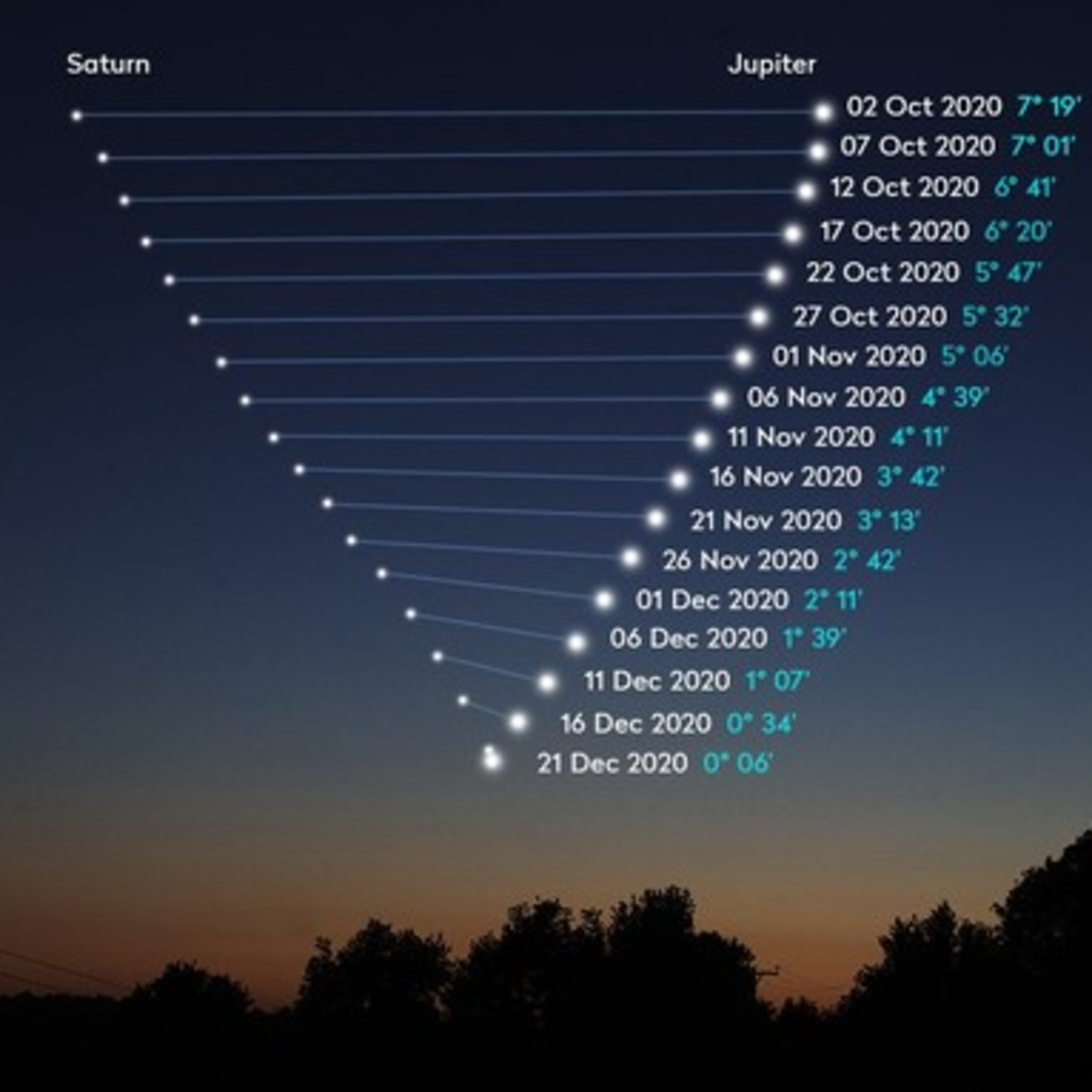
Learning by WilliamOn December 21st, the “Great Conjunction” of Jupiter and Saturn Will Occur. Here is What That Means:5 out of the 7 extraterrestrial planets in our solar system were discovered by the same man; his name was Galileo Galilei. In 1609, after hearing about Hans Lippershey’s Dutch Perspective Glasses, Galileo designed his own telescope.. In only a few days, without ever having seen one. This telescope was orders of magnitude better than Lippershey’s patented telescope, and allowed him to explore the cosmos in a way unheard of before. He discovered Venus, Mars, Jupiter, and Saturn, all with that same telescope he had recently built. As time progressed forwards, the telescopes we used progressed as well. We went from...
2020-12-1927 min
Learning by WilliamWhat Does Population Growth Look Like in Biology? What Are Carrying Capacities, Predation, R-Selections, K-Selections, Overshoots, and Die-Offs?The human population has increased dramatically in the last two centuries. Since the Industrial Revolution, 200 years ago, our population has increased from around one billion to nearly eight billion. There are many reasons as to why our population is growing at such a rapid rate; this growth can be attributed to improved healthcare, industrialization, among many other factors. For humans, our growth can be measured by a theorized model of population growth known as the demographic transition model. This theory works very well for human populations, but what about the natural populations you clicked on this video to learn...
2020-12-1227 min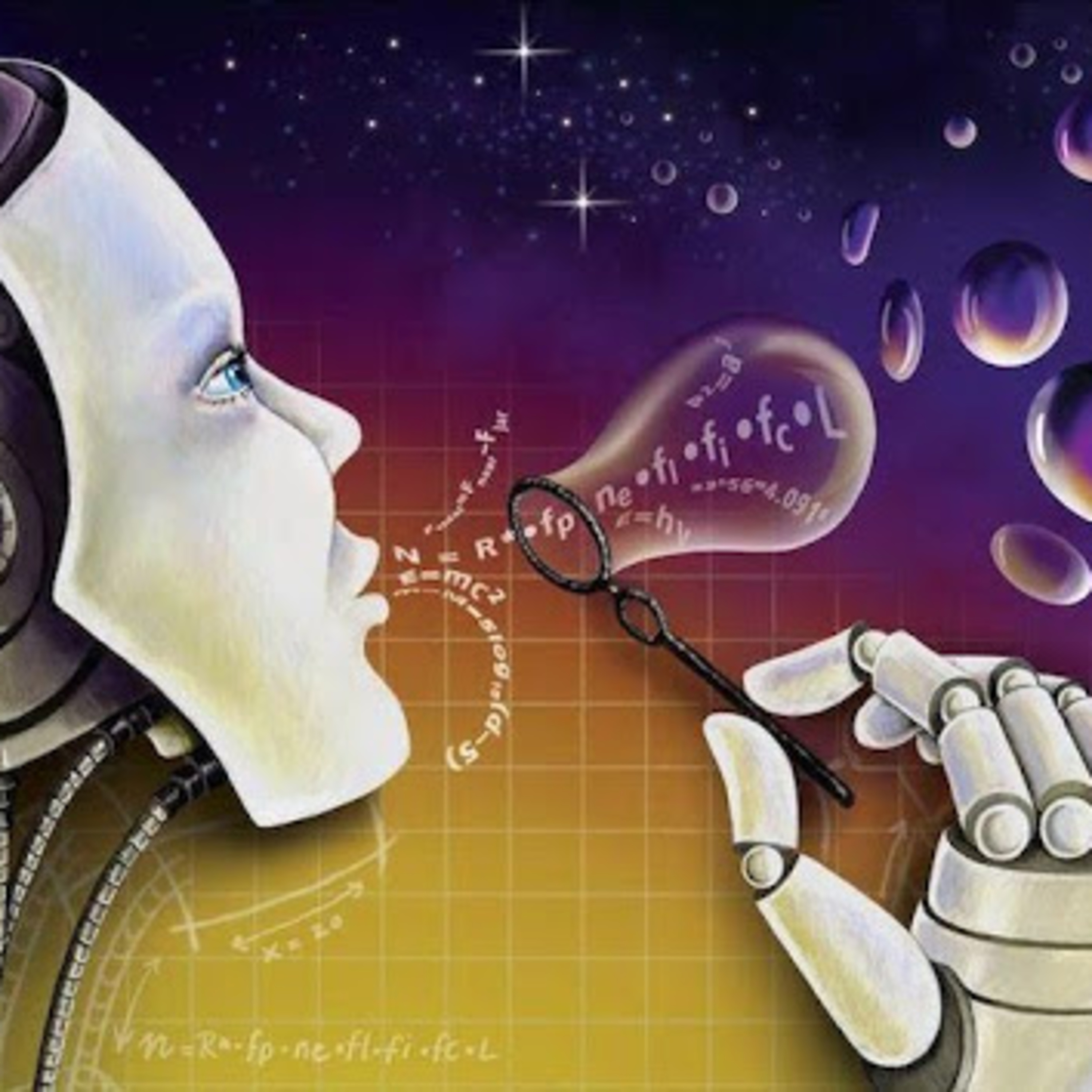
Learning by WilliamWhy Does it Seem Like we are Alone in the Universe? What is the Fermi Paradox and the Great Filter?The great astronomer Carl Sagan once spoke for wanderers across all borders, ethnicities, races, and religions, when he said. “We were wanderers from the beginning. We were bounded only by the earth, and the ocean, and the sky. The frontier was everywhere.” Humanity’s addiction with exploration and wonder is intrinsically tied to our nature. Our dauntless exploration is a testament to our nature; to survive, we must explore new worlds. When the drought was prolonged, or when the food was scarce, we moved on. We wandered throughout our terrestrial planet, searching for survival. We were hunters and foragers, explor...
2020-12-0525 min
Learning by WilliamThe Arecibo Radio Telescope, the Largest Operational Radio Telescope in the World, is Being DecommissionedIn Arecibo, Puerto Rico lies a great radio telescope. For 53 years, the Arecibo observatory had been the largest radio telescope on the planet, and was the largest operational radio telescope in the world for all but 10 months of its existence. Constructed in 1963, the impressively massive 305 meter (1000 foot) radio telescope helped stage significant advances in the astronomical sciences. Arecibo remained the prime telescope of the SETI (Search for Extraterrestrial Intelligence) and METI (Messaging to Extraterrestrial Intelligence) projects, both initially formulated by NASA but later formed into a nonprofit organization. The Arecibo Observatory, without a doubt, is the most famous radio...
2020-11-2825 min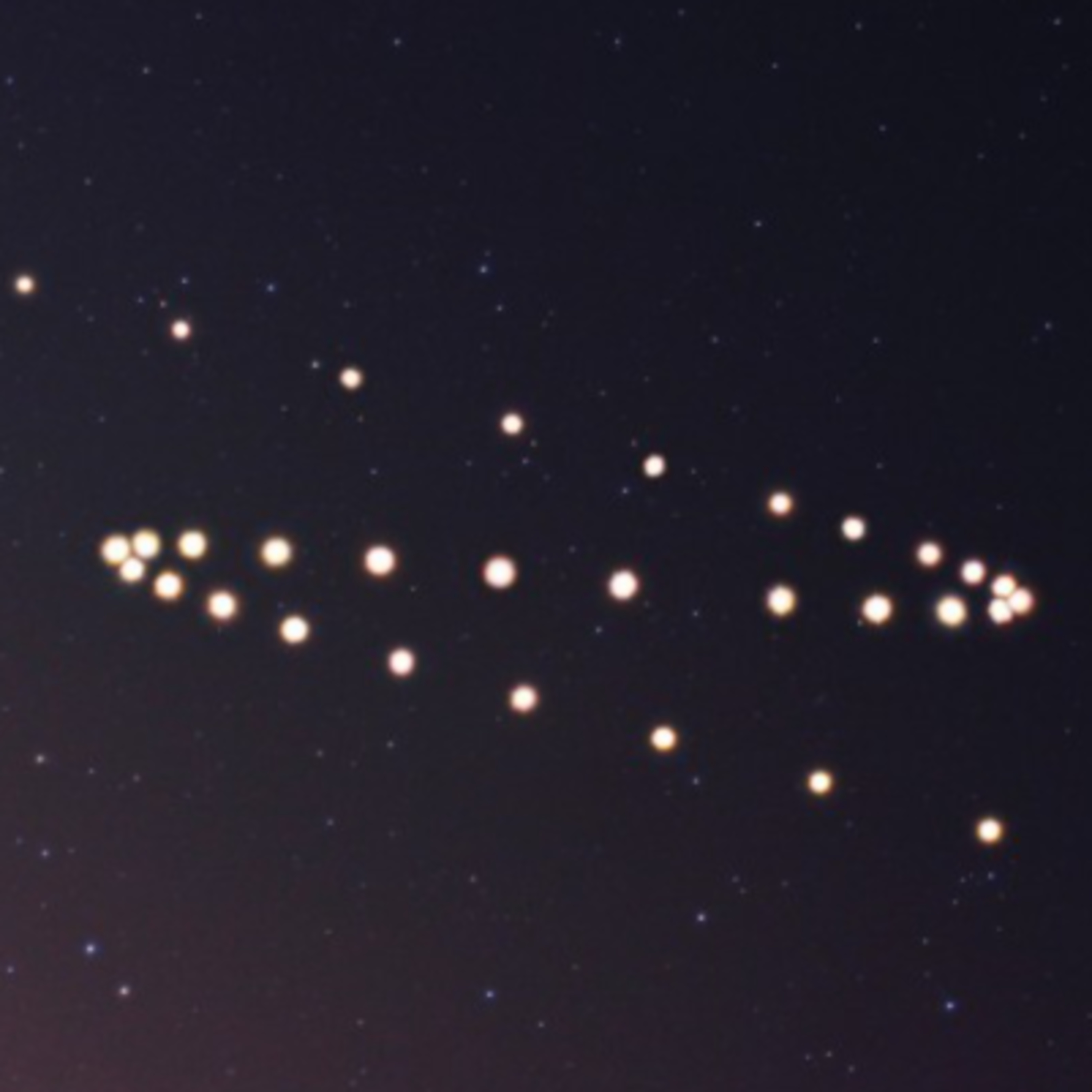
Learning by WilliamWhy Does Mars Appear to Move Backward Over Some Nights? What is Retrograde Motion?When the great Greek astronomer Claudius Ptolemy gazed at the heavens, he felt the particular curiosity many of us have come to know. He was exceptionally curious as to what caused the stars, the sun, the moon, and the planets to seem to rotate around Earth every night and day. This caused him to formulate the Ptolemaic Model of the Universe, otherwise known as the geocentric model of the universe. The geocentric model comprises our planet, Earth, in the center surrounded by the rotating heavens known as the celestial sphere. Everything, including the distant stars and planets, the sun...
2020-11-2125 min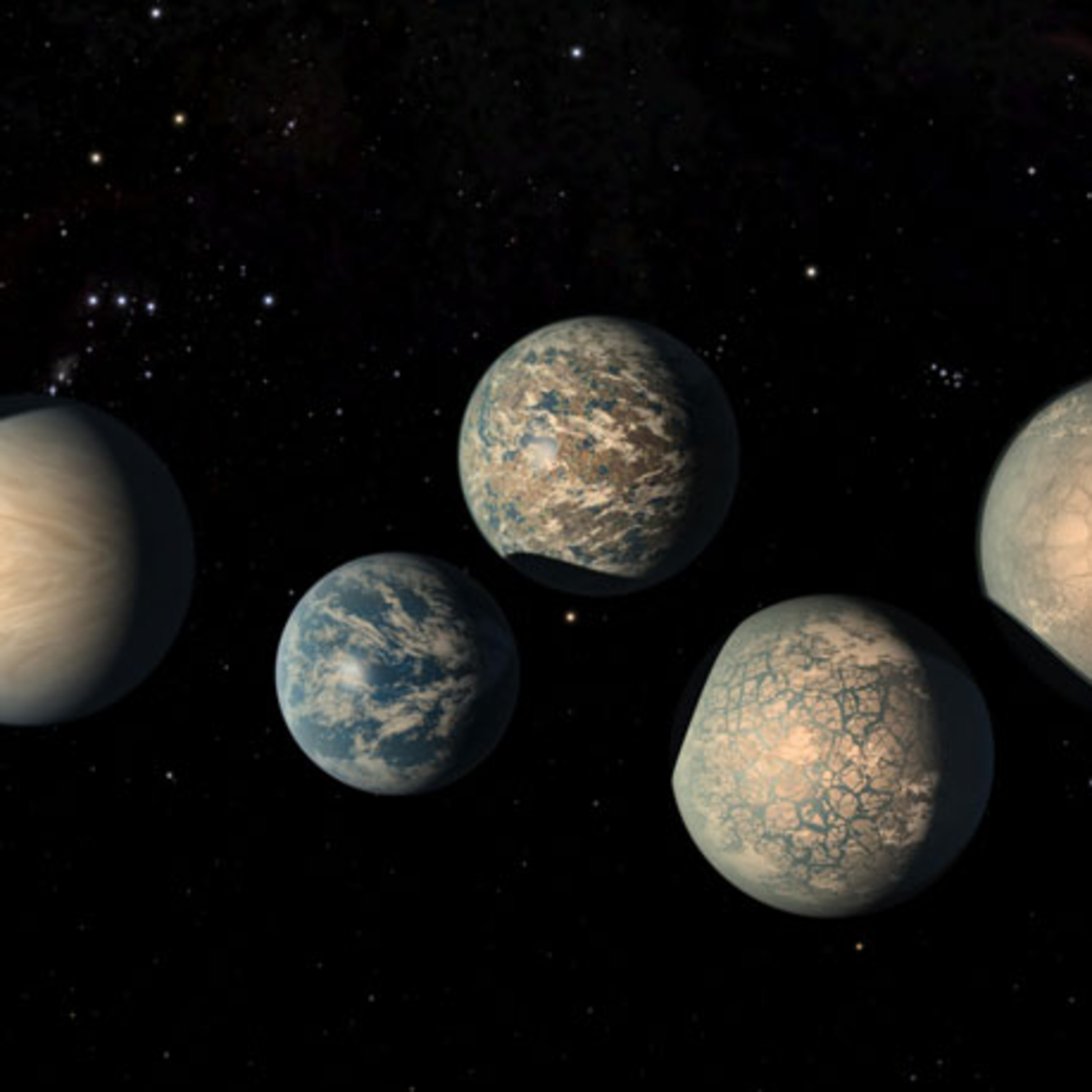
Learning by WilliamWhat Planets and Moons in our Solar System Have Liquid Water?Astronomy is a very humbling experience. Throughout the entire existence of humanity we have looked up at the night sky and the heavens with an everlasting wonder. We always wondered if someone else could be looking right back at us as we were looking towards them. It is the forefront of the human species to be curious, to question, to wonder, and to explore. Our search for answers on if we are one of only or one of many in the universe is no different from our own natural curiosities. As we have looked more thoroughly into the cosmos...
2020-11-1429 min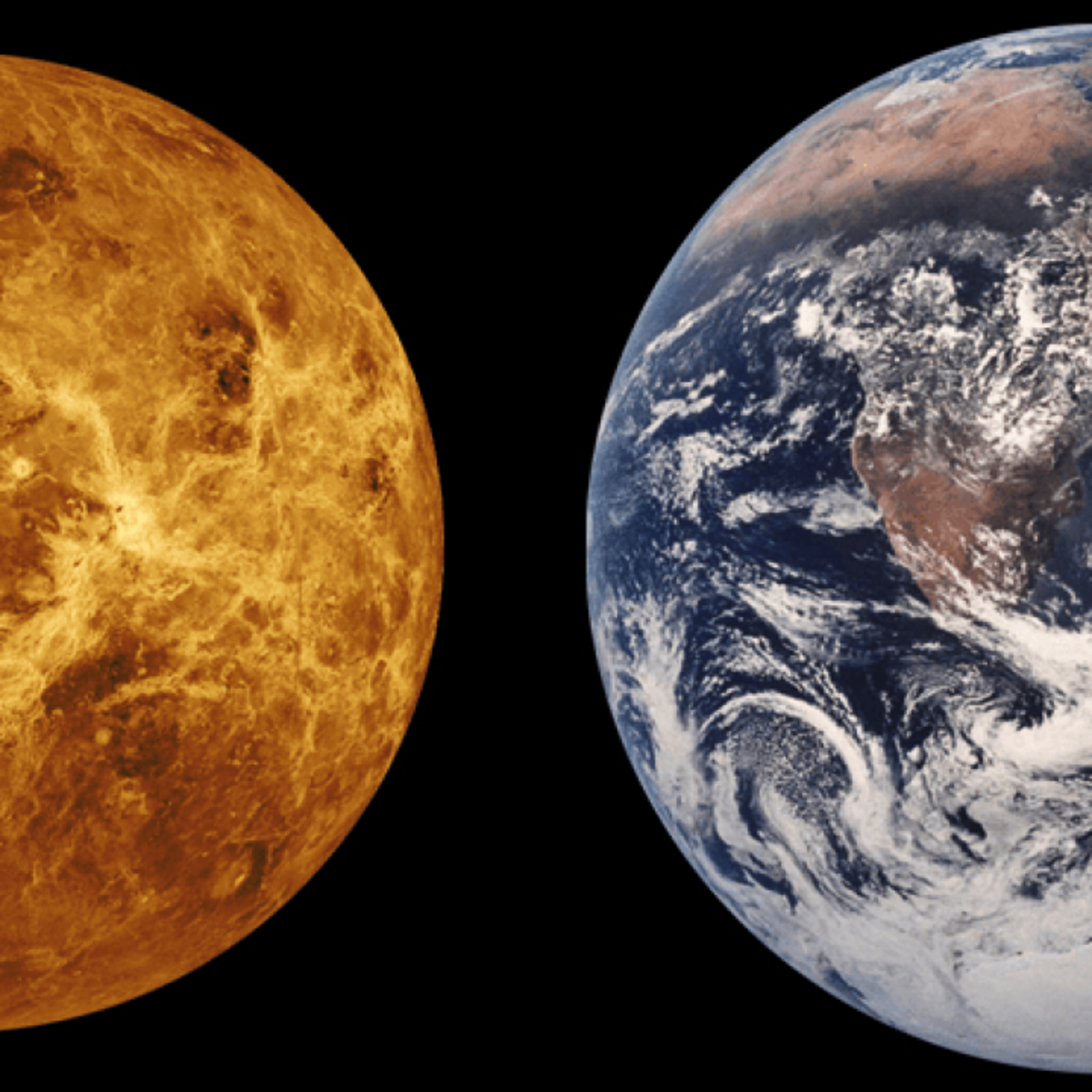
Learning by WilliamPhosphine and Glycine, two Biomolecules, were Discovered in Venus's Atmosphere; here is what that means:For centuries, humans looked up at the brightest planet in our night sky and thought, “could someone be looking back at us?” Venus was always considered to be Earth’s twin sister; the two planets hold alike similar orbits, they are both within the general habitable zone of the Sun, they are both similar in size, mass, and of course gravity; wouldn’t it make sense that under those vibrant orange clouds, there would be another species of extraterrestrials. This is how we thought all the way until the 1960s, when the great planetary astronomer Carl Sagan discovered an immense...
2020-11-0729 min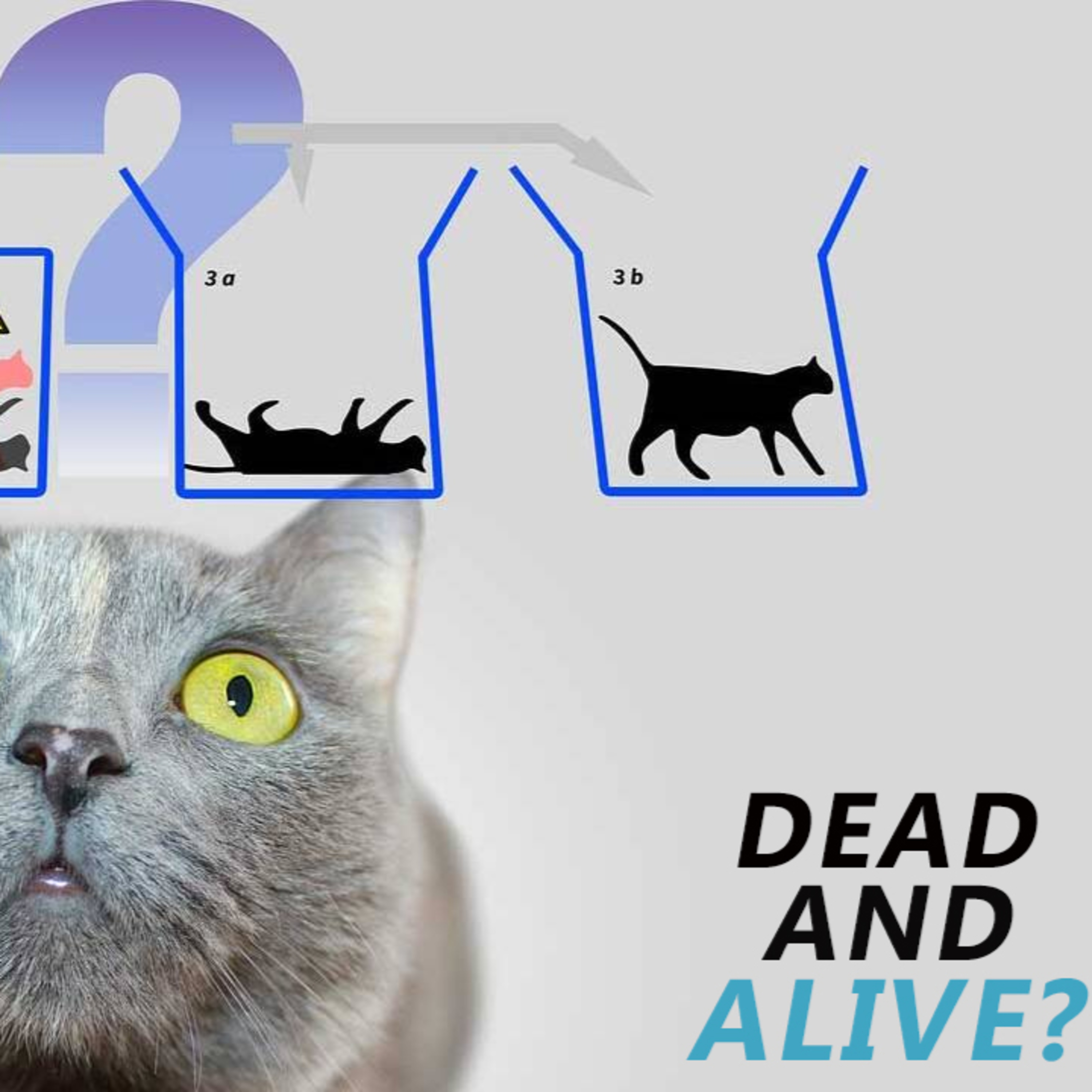
Learning by WilliamThe Schrodinger's Cat Thought Experiment, the Many Worlds Interpretation, and Quantum ImmortalityHas there ever been a math problem, or a confusing word in a book that has confused you? Have you ever become extremely frustrated by the fact that you have no idea what you are trying to solve? Has this difficult math problem or hard-to-cypher word been on a test? After putting in all your effort into thinking about what the answer may be, have you come up short? Did you say “there must be no answer to this question. This question is a paradox?” Well, if your math question is related to the Schrodinger’s Cat thought experiment, you ar...
2020-10-3131 min
Learning by WilliamThe Psychology Behind Why People Refuse to Wear Face Masks that Slow the Spread of COVID-19We’ve all seen the enraging videos of Americans aggressively refusing to wear masks, even in areas in which masks are required. In these videos, we see patterns in their defiance; they seem to claim and support the same things. Most will say something along the lines of “it is my freedom to choose whether I wear a mask or not,” “this is a free country,” “I can’t breathe with it on,” or “COVID doesn’t exist.” Even though they seem to claim the same things when defying the law, what is the actual psychology behind why so many people feel wary...
2020-10-2400 min
Learning by WilliamOur Future in the 21st CenturyThe future of humanity is far more uncertain than the future of earth. Earth, being an inanimate object, can be predicted quite easily by the laws of the universe. With conscious and volatile beings like humans, attempting to predict exactly what will happen in their future is almost completely impossible. Though, of course being curious, wondrous human beings, we love to attempt at predicting that future. In this episode, we will delve into a few of the many possible futures we may have this century.
If you have any questions, comments, concerns, or corrections...
2020-10-1736 min
Learning by WilliamThe Theory of Evolution By Natural and Sexual SelectionFor the third episode of Learning by William, we delve into theories comprising the biological law of evolution. The main theory is, of course, Darwinian Evolution (or Evolution by Natural Selection). In this episode, you will learn about the process of natural selection, along with real-life examples that could apply to you; additionally, you will learn about the process of sexual selection and how it applies to human mating rituals. Thank you all for listening to the third episode of the "Learning by William" podcast! I hope you all enjoy!
If you have any...
2020-10-1030 min
Learning by WilliamThe Birth of Our Solar System and the Origin of LifeThis episode we will immerse ourselves in the science surrounding the origin of the solar system, the origin of Earth, and the origin of life. We will discuss theories surrounding the creation of the solar system, possible large impact events that could have created the moon, the accretion of Earth, and theories surrounding the origin of life on our planet. Thank you all for listening to the second episode of the "Learning by William" podcast! I hope you all enjoy, and have a good morning, good afternoon, good evening, and goodnight.
If you have...
2020-10-0327 min
Learning by WilliamThe Birth and Death of the UniverseIn the first episode of this science podcast, we will delve into the most-important question ever asked: how did it all begin? In this episode we will discuss various theories surrounding the origin of the universe, potential causes for this origin, the eventual death of our universe, and theories surrounding this eventual death. On top of this, you will learn some reasons as to why scientists know how our universe began, and how scientists can map how our universe may "end." Thank you for listening to the first episode of "Learning by William" and I hope you all enjoy...
2020-09-2721 min